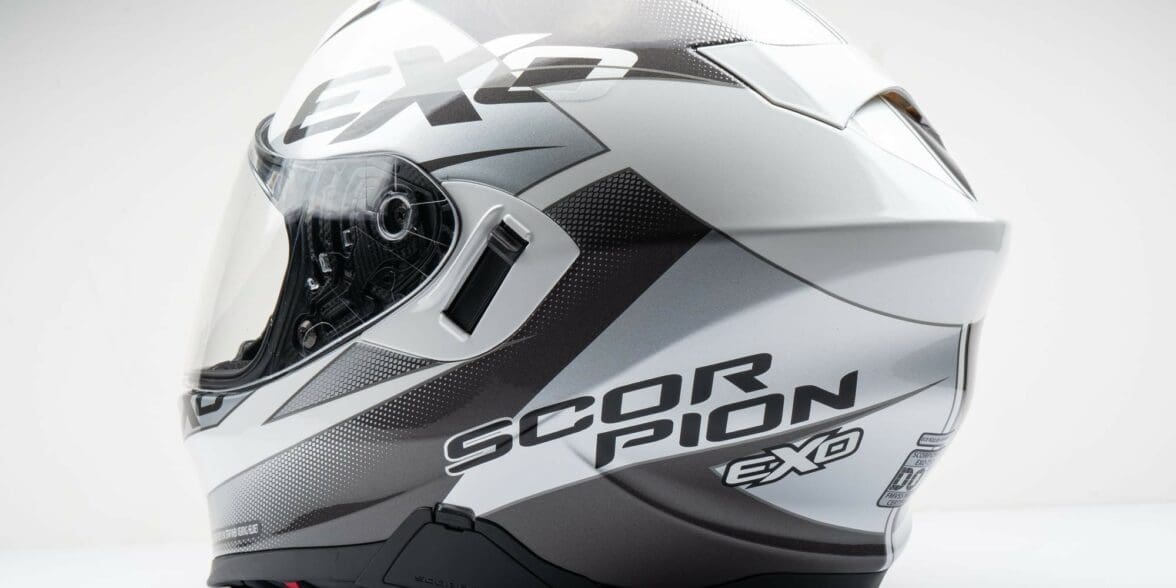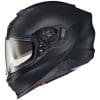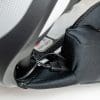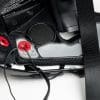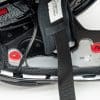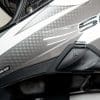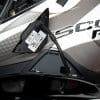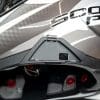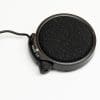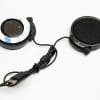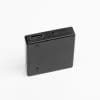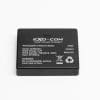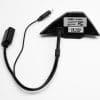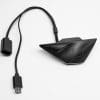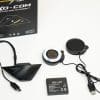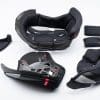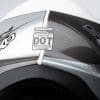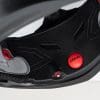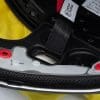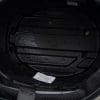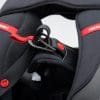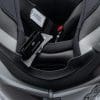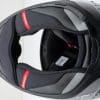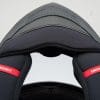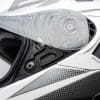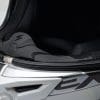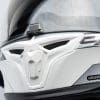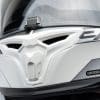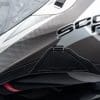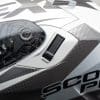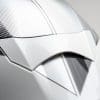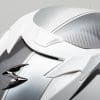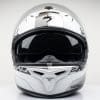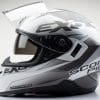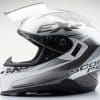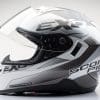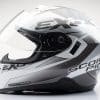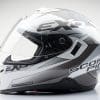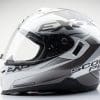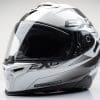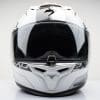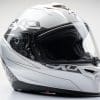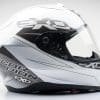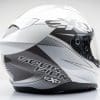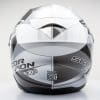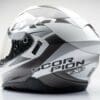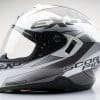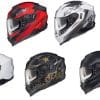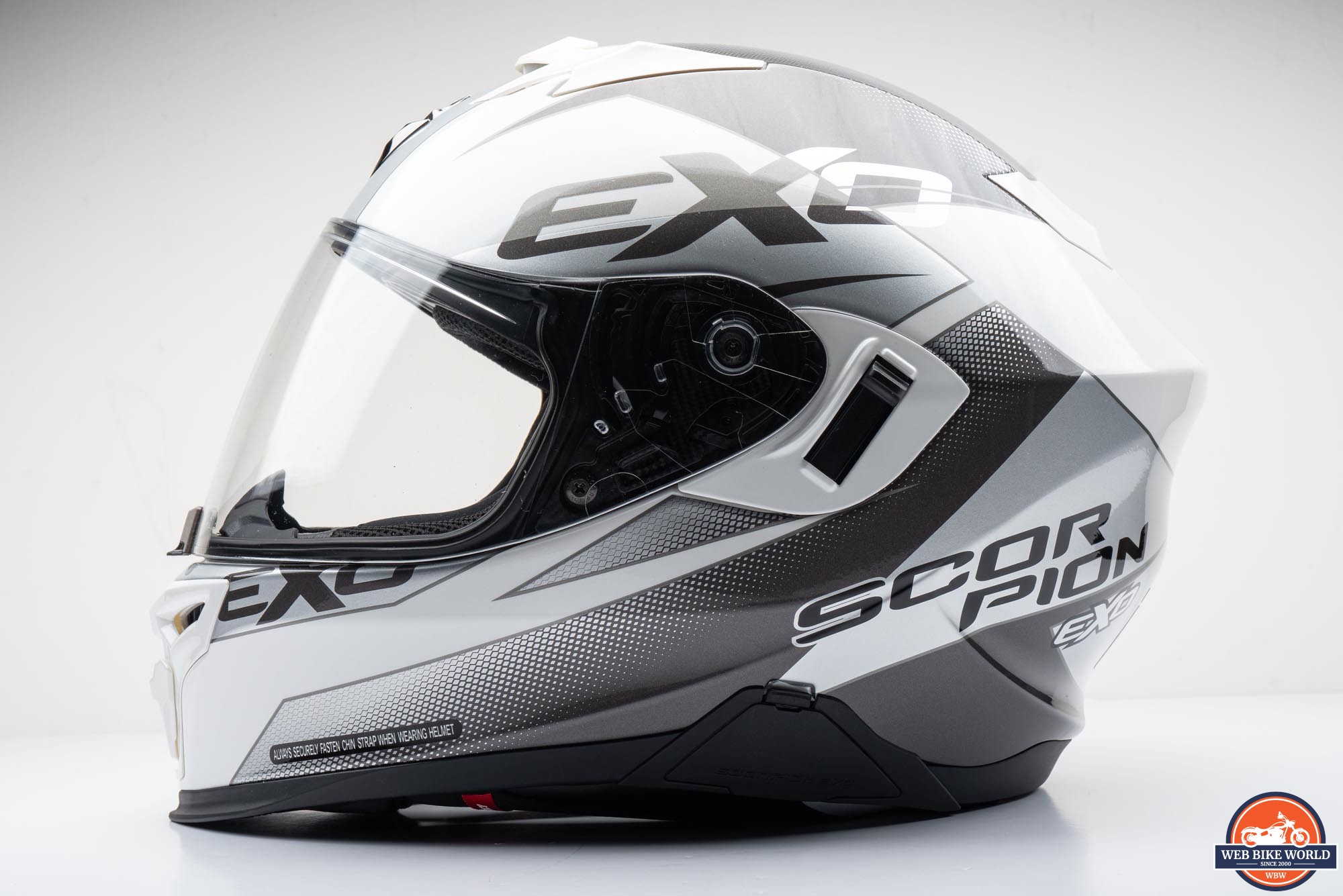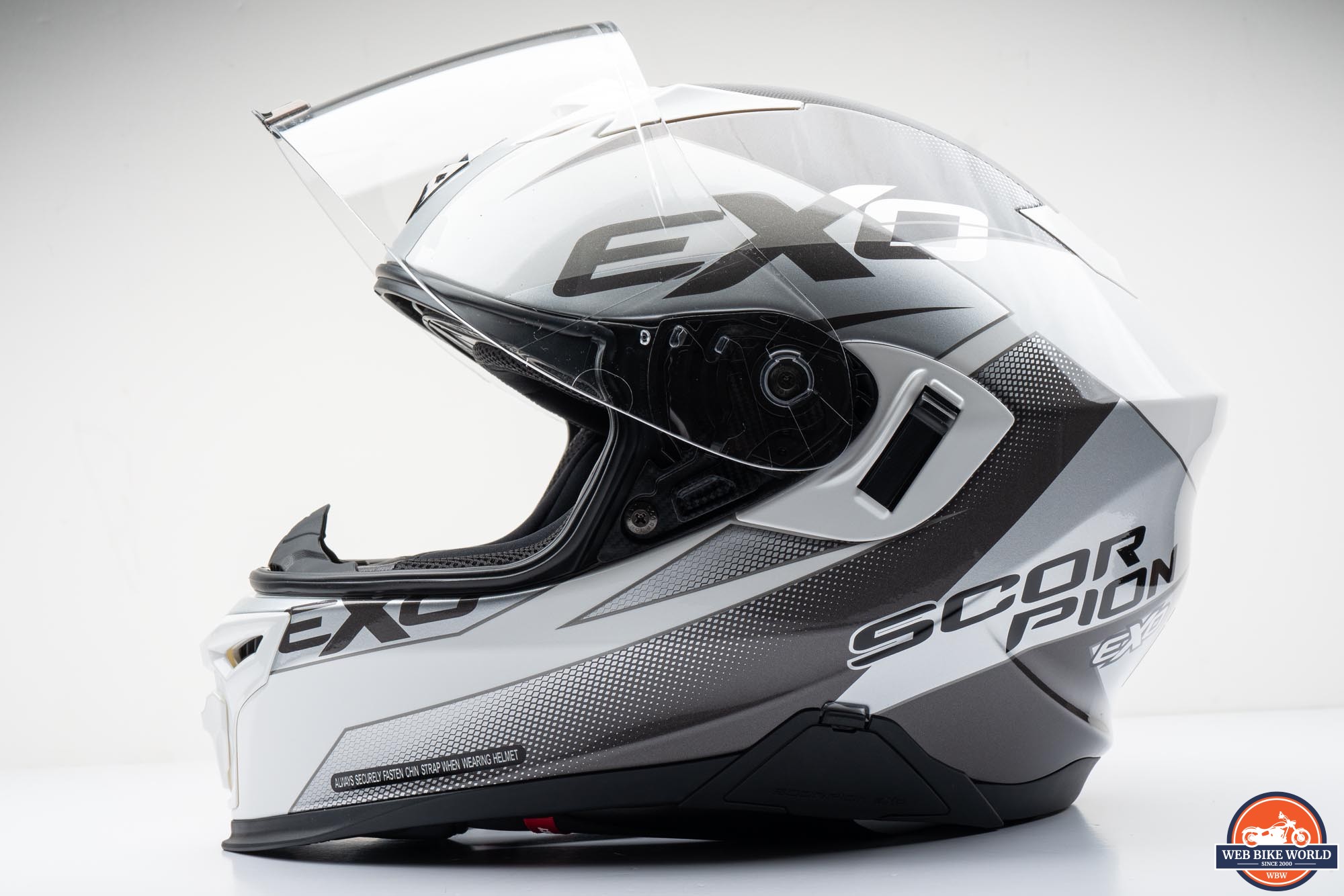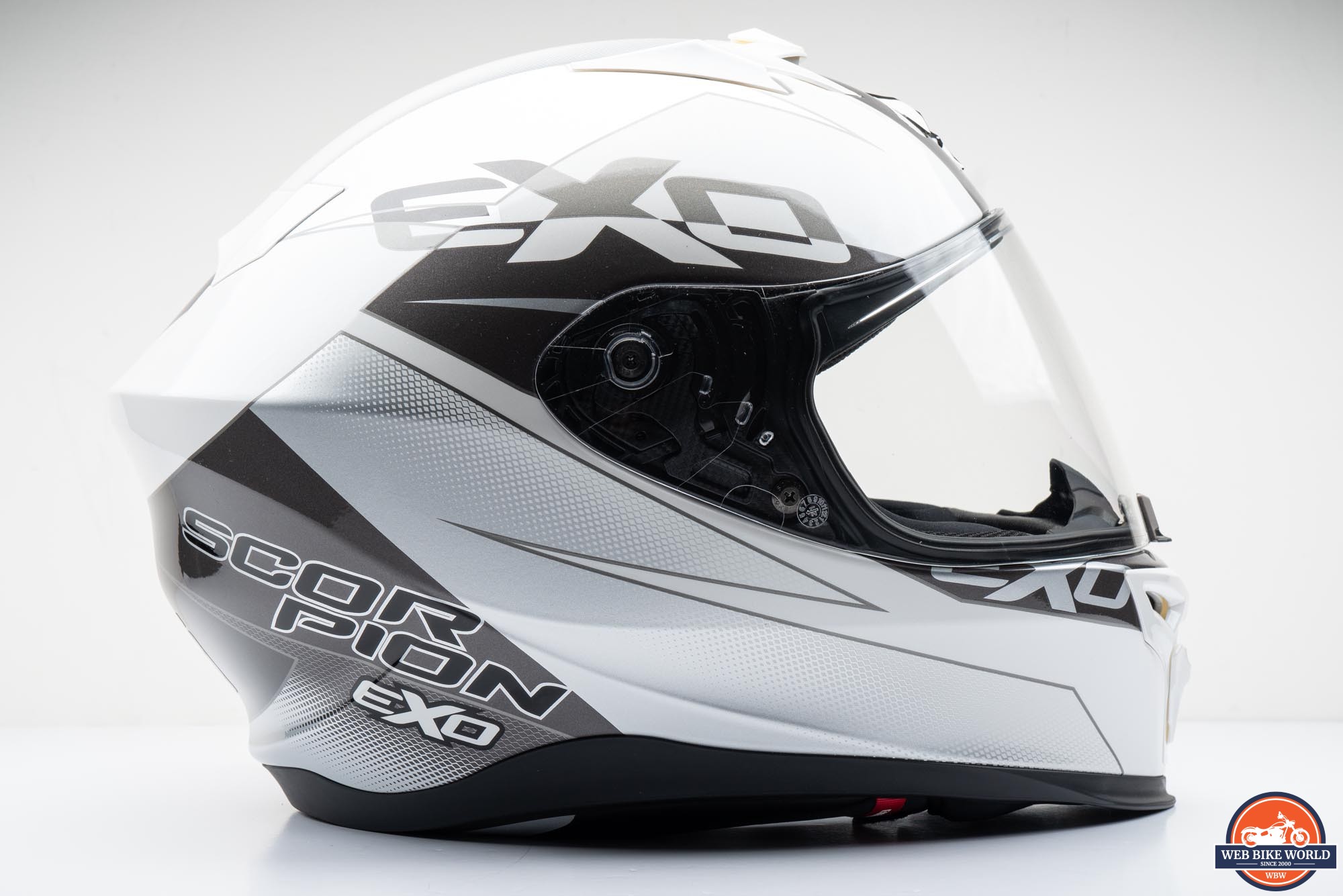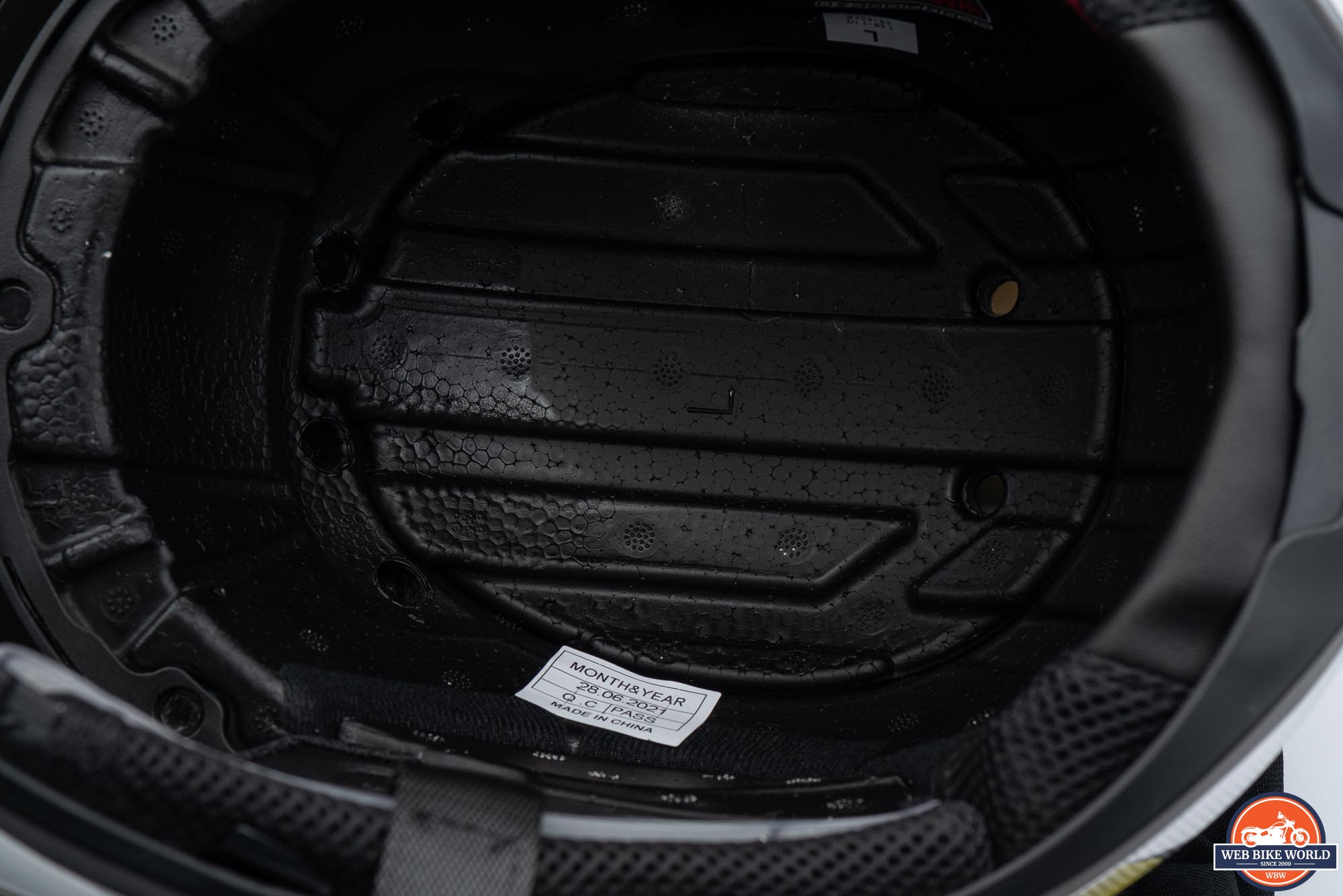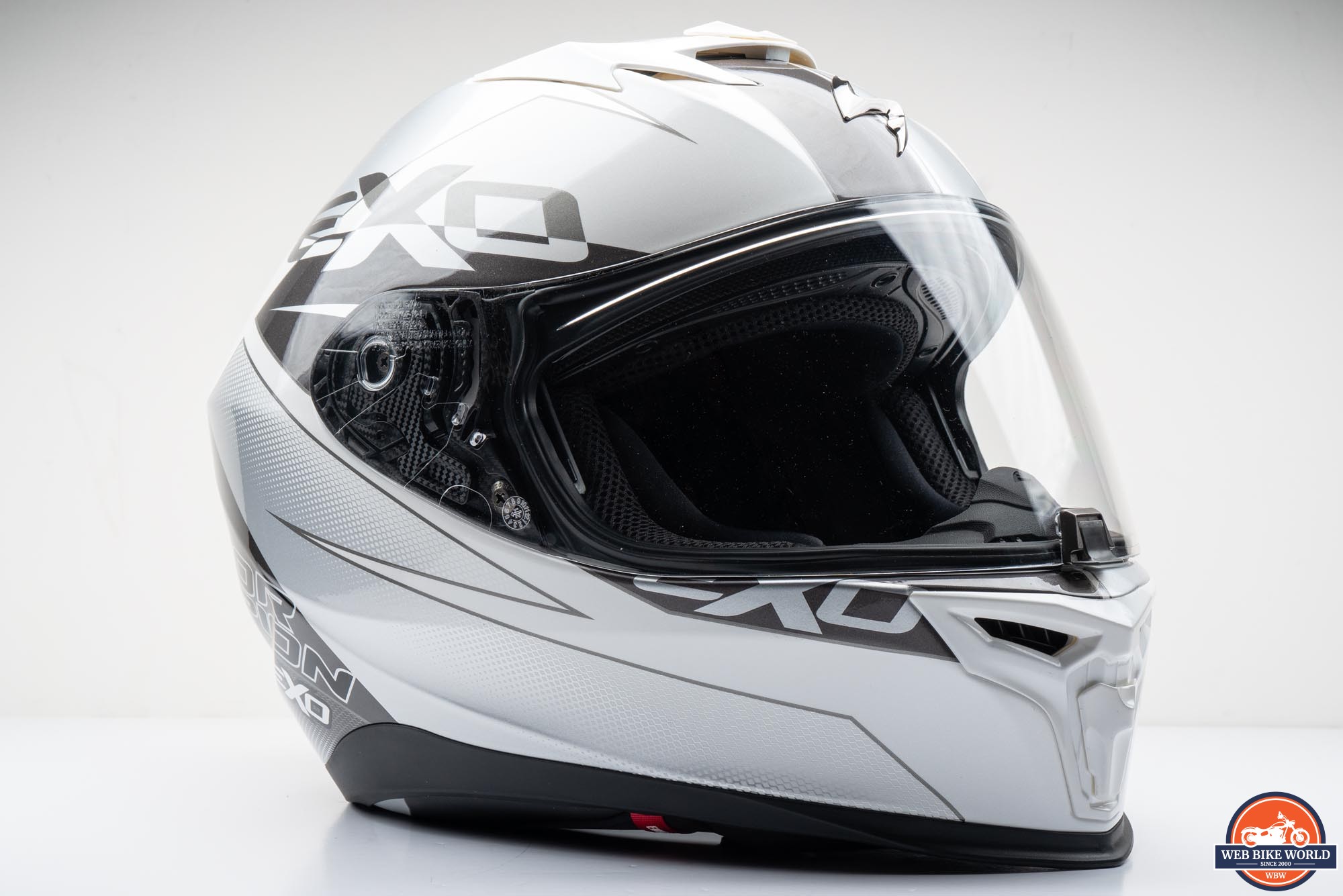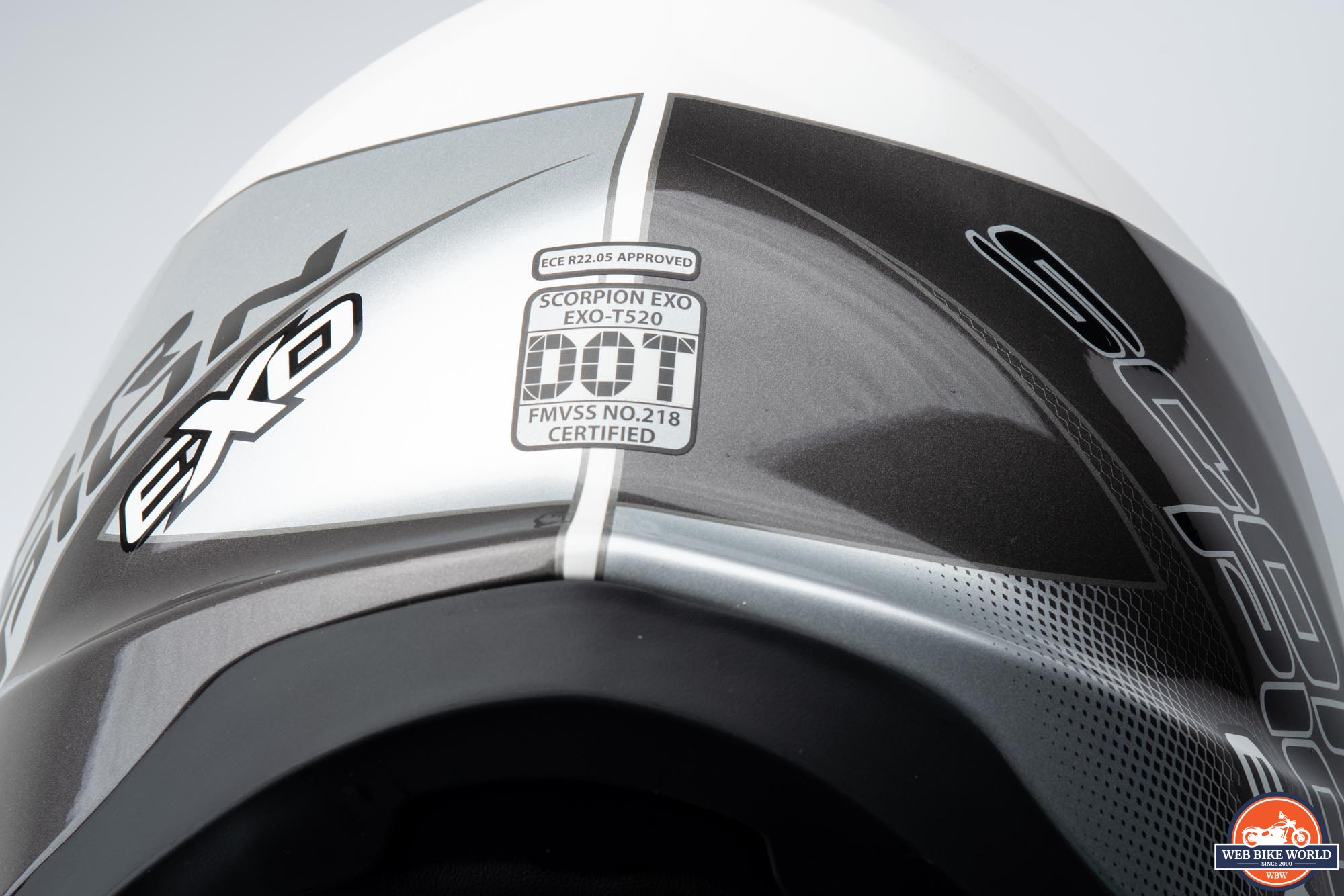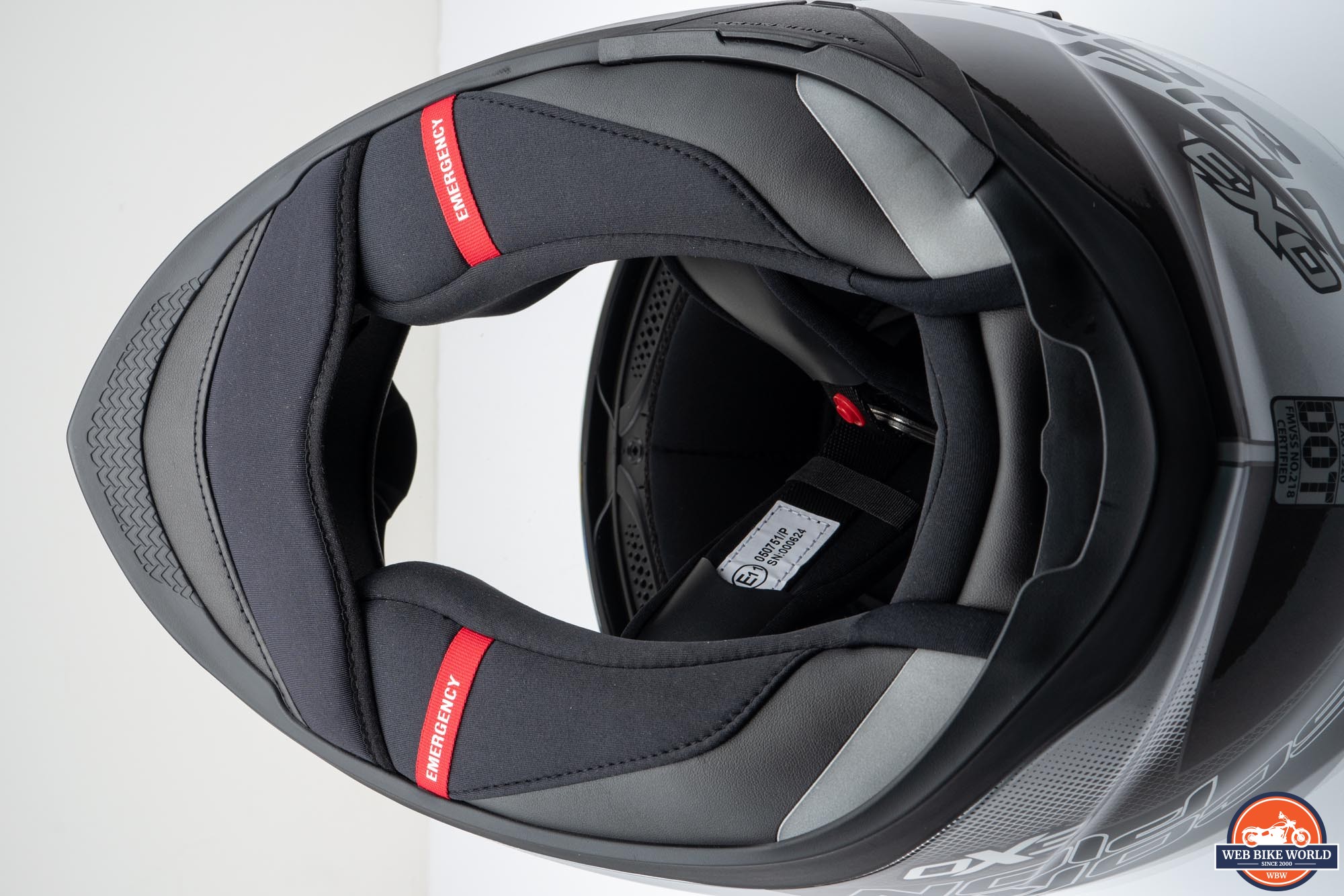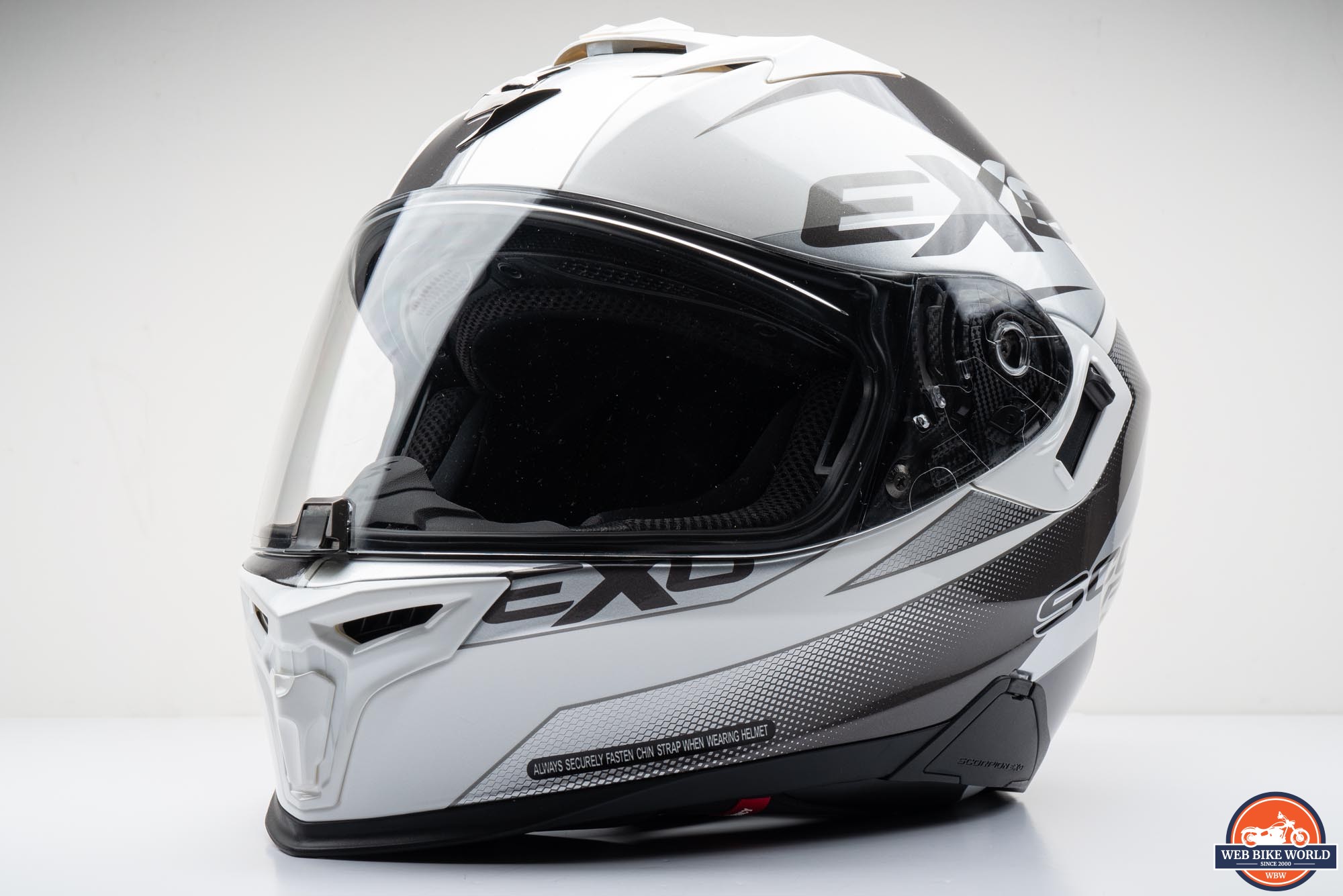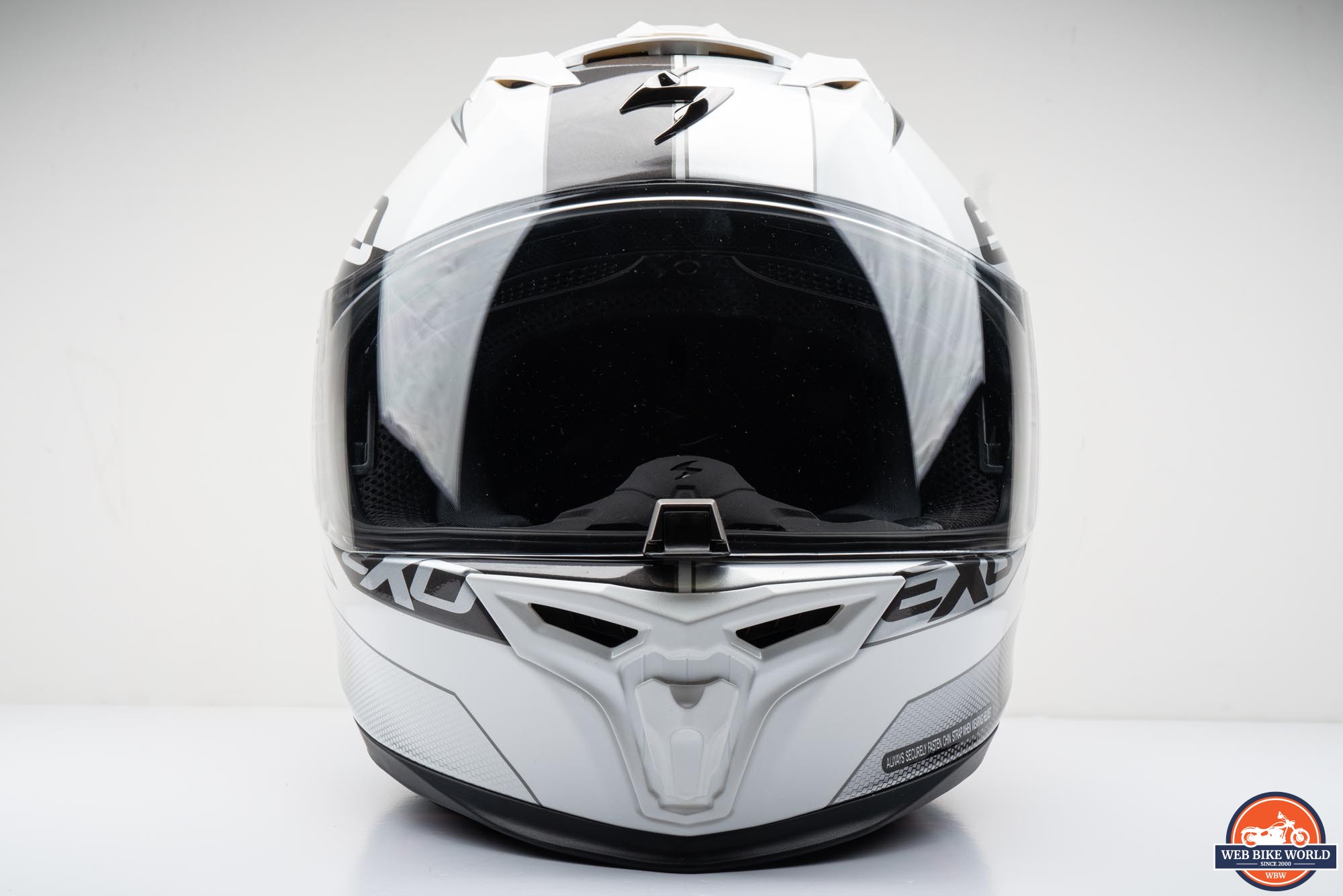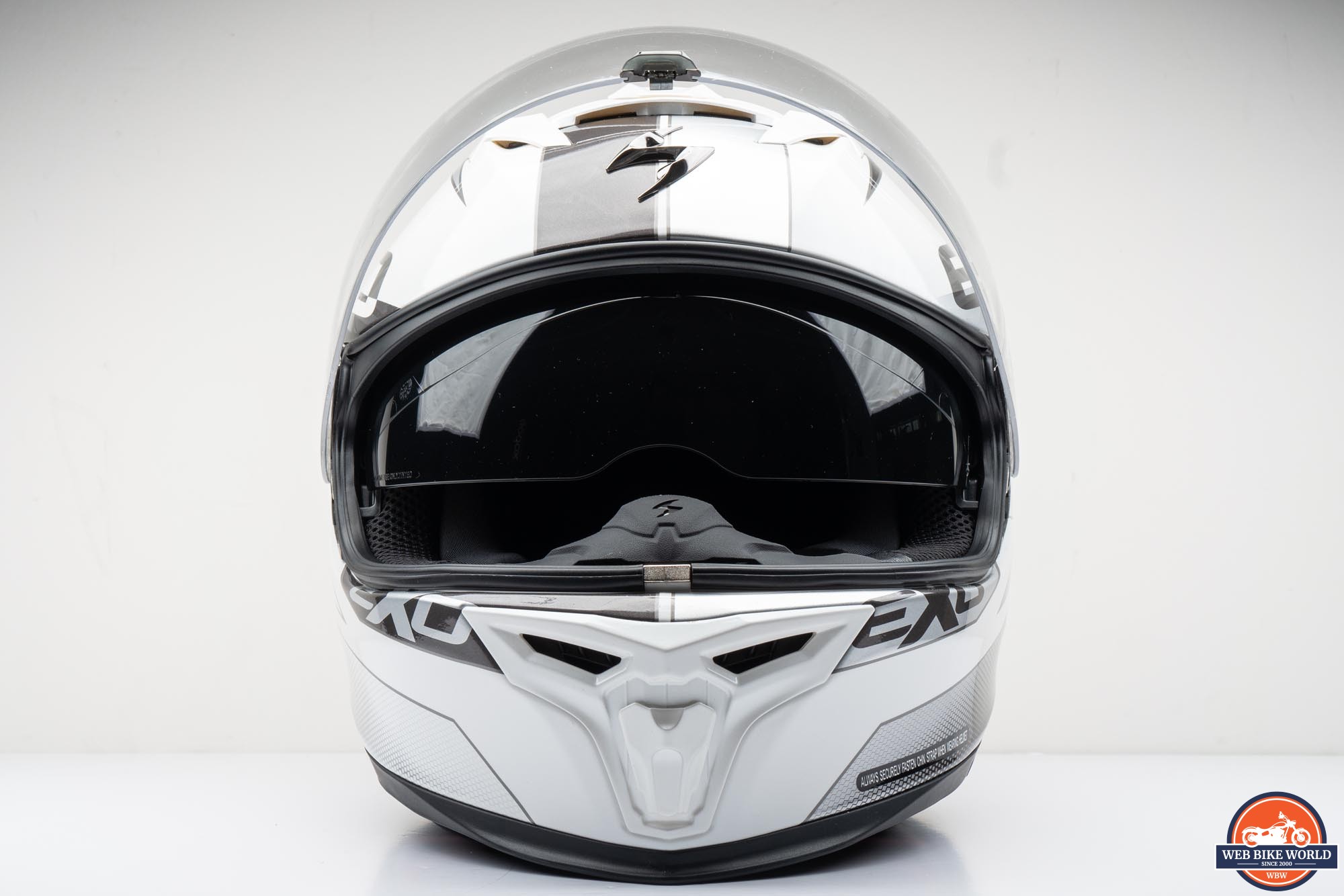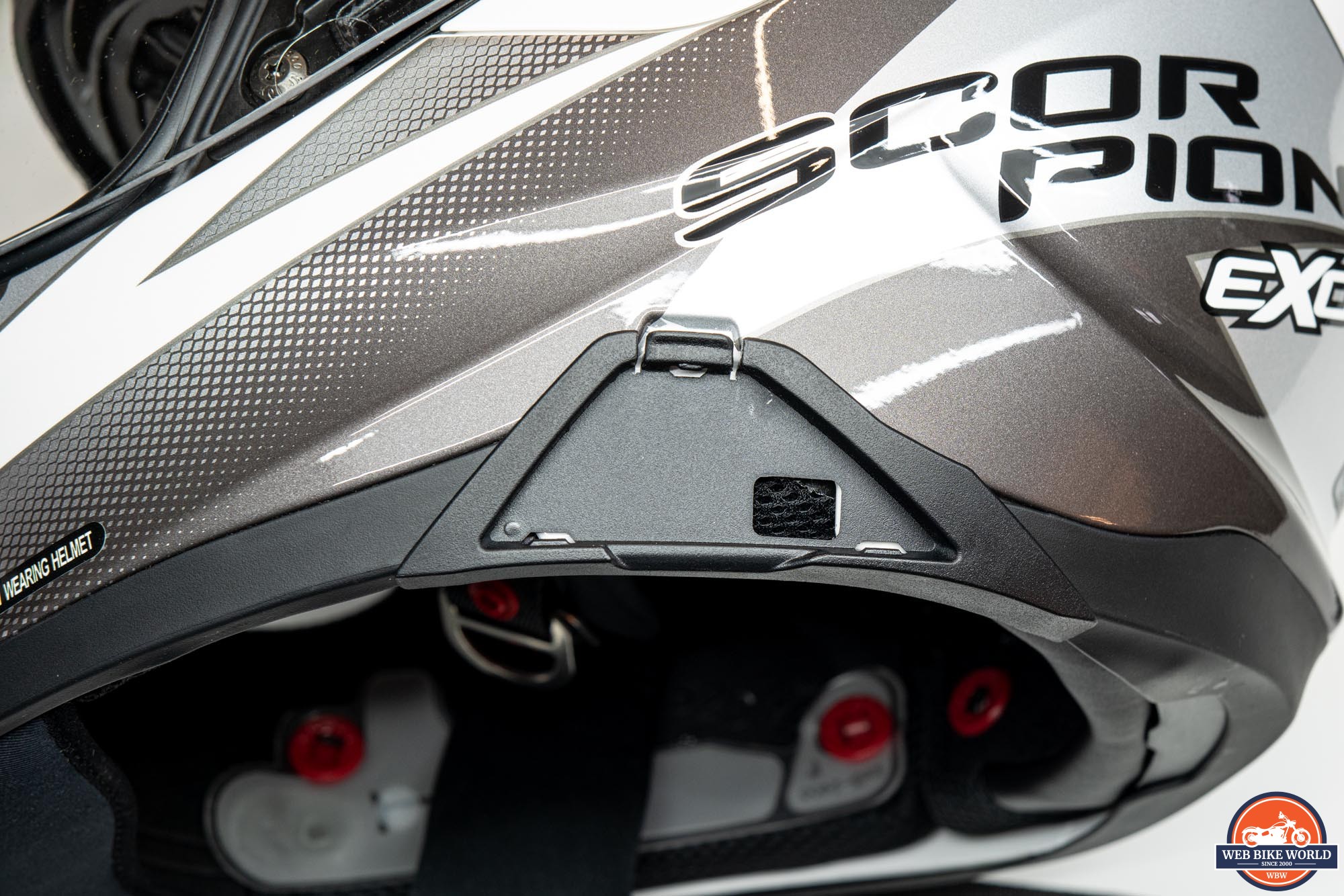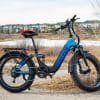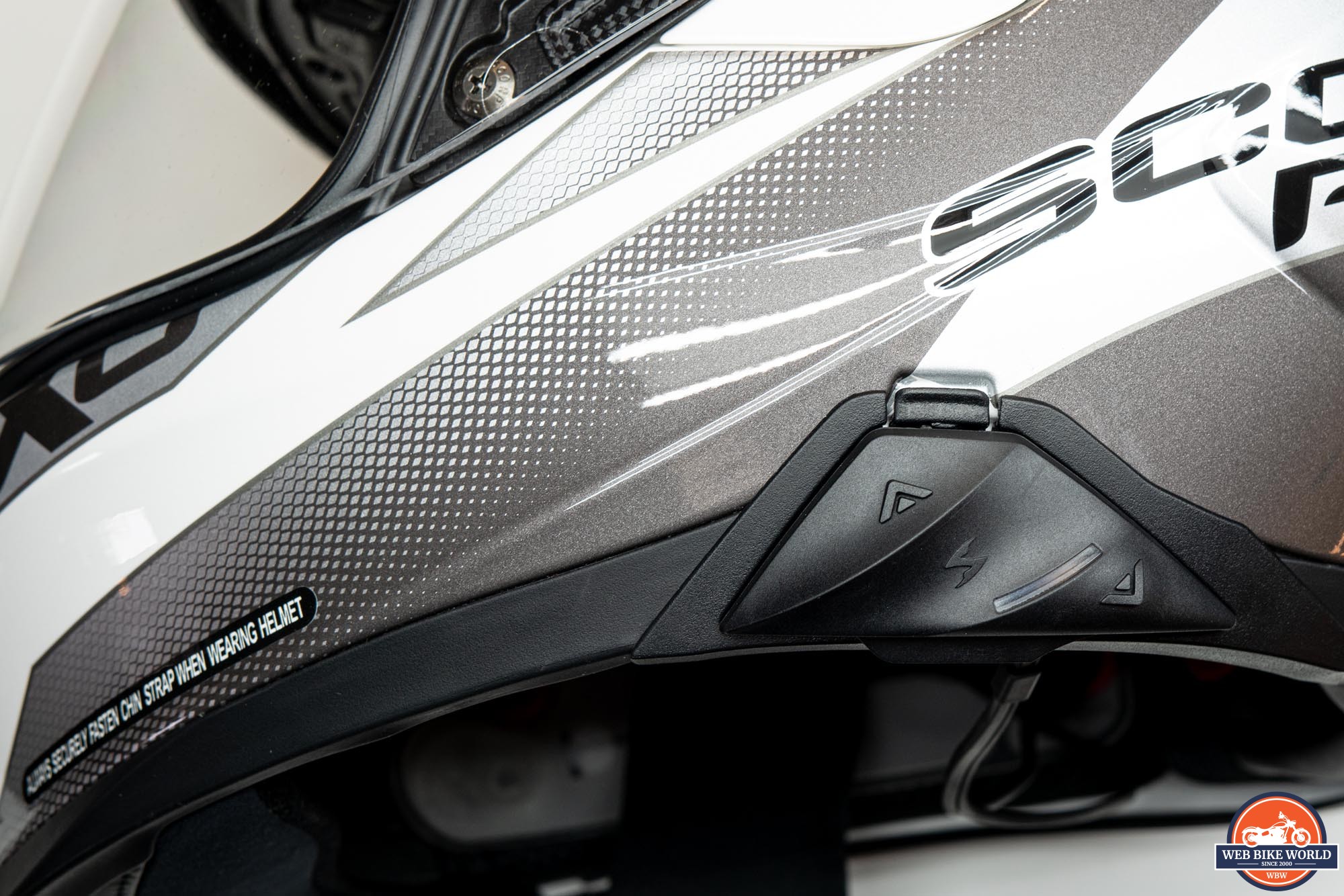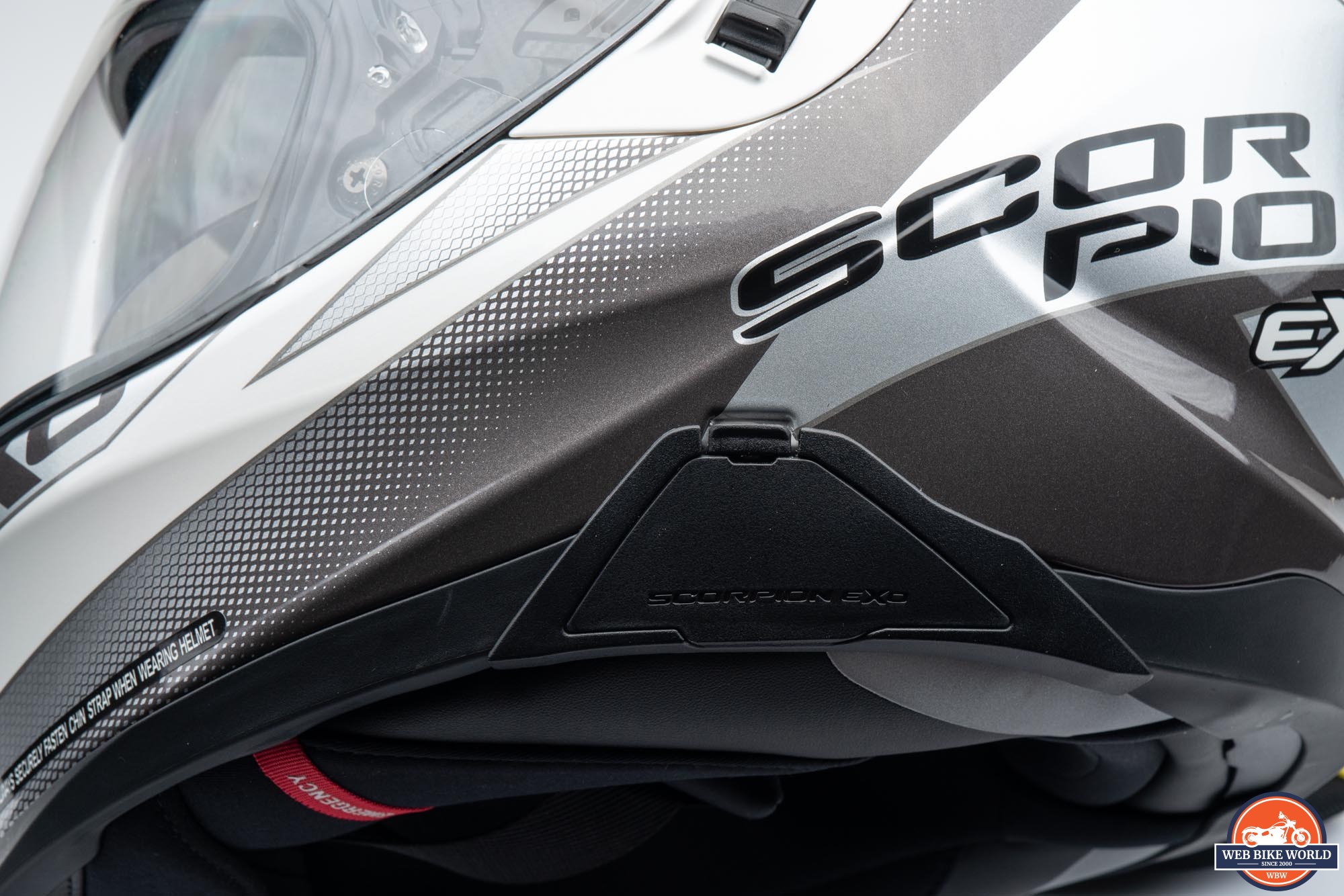Introduction
For over two decades whenever I think of Scorpion helmets I think of the phrase “bang for the buck” and the company has done a great job of perpetuating that idea over the years. My own “daily driver” helmet has been their EXO-ST1400 helmet I reviewed here over two and half years ago.
That helmet was and still is, around twice the price of the helmet being reviewed here and I still consider that a great value with its carbon-fiber construction and high quality finish. That helmet remains one of the least expensive carbon-fiber lids you can get.
Released in 2021 the T520 slots nicely into the touring/sport-touring space with a respectable feature set and quality build that has this helmet truly punching above its weight. Scorpion has also added a new trick to its repertoire by offering a self-branded Bluetooth communicator system designed to work specifically with the T520 and their GT-930 helmets.
Most webbikeworld.com readers should be familiar with Scorpion USA but if one is looking for some info on the brand, check out the review of the EXO-R1 Air helmet reviewed back in 2020.
The EXO-T520 Helmet
The EXO-T520 represents Scorpion’s top of the line for their full-face, polycarbonate shell helmets. It sits under the EXO-ST1400 (carbon-fiber shell) and next to the new EXO-HX1 which is part of Scorpion’s Covert line of helmets. The EXO-T520 is available in three “solid” options which are white, black, and matte black. There is a “Golden State” gold-on-black graphic and the “Factor” graphic in dark gray (phantom), red, and white which is the colorway I received for this review.
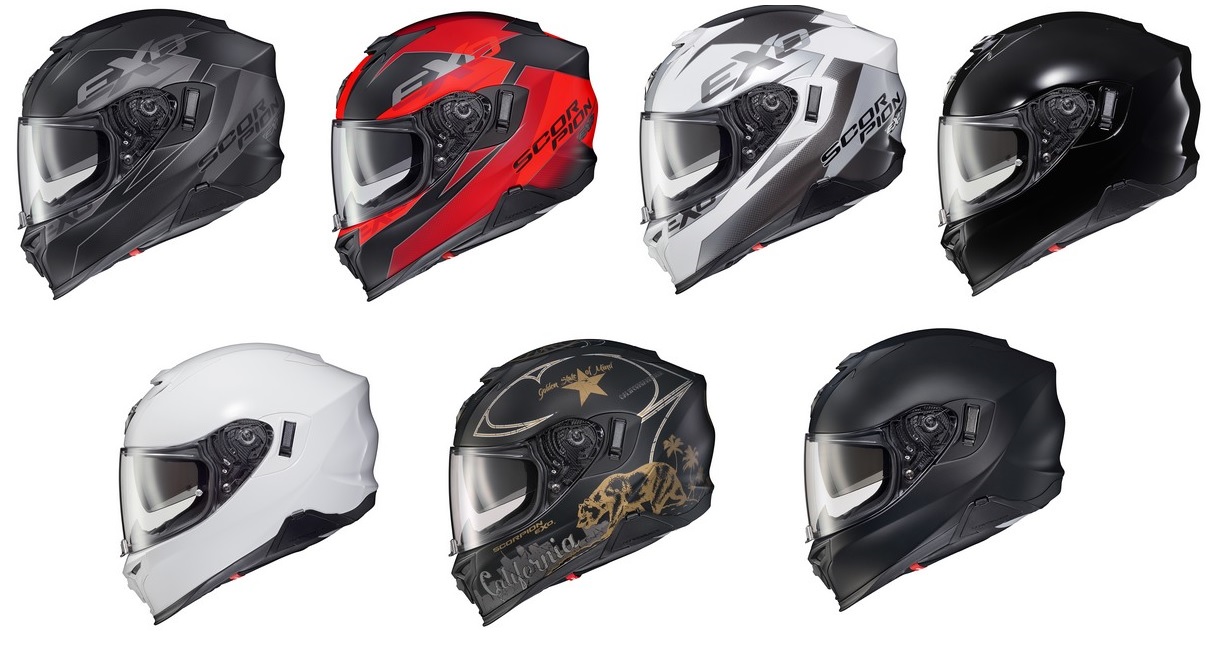
Considering the EXO-T520 series starts at $199.95 (solids) it does make one wonder exactly what can really be had at this price point. The answer is “quite a lot” and I’ve listed the highlights below.
Features
- Everclear® No-Fog Faceshield
- AirFit® cheekpad inflation system
- Emergency cheekpad release pulls
- Drop Down Sun-Visor
- EXO-COM® Ready
- 3 Shell Sizes
- 5 Year warranty
For a helmet in this price range, the T520 is bringing a lot to the table and frankly, I’m not sure what else they could stuff in this lid. Of course, to get it to this price we are talking about a polycarbonate shell instead of more exotic and lightweight materials. There is also no Pinlock ready visor (and insert) included here like some of Scorpion’s higher-end offerings.
For most riders though the above reasons won’t be a deal-breaker. Logic would dictate that there must be some “corners” cut somewhere in the helmet in order for this unit to be profitable so let’s take a closer look and see if the T520 can defy that logic.
Paint and Graphics
The “Factor” graphic is very well applied to the T520 as it appears to be straight and the edges of the decals make a minimal “bump” in the clear coat finish of the helmet. It’s a nice-looking graphic in my opinion and while it’s not what some might consider exciting, it is well executed and adds interest compared to the solid color options.
A good portion of the graphic is white and light gray providing for good visibility of the rider. The red version appears as it would also offer good visibility while the dark gray, or “Phantom” version is going to offer a more stealthy appearance.
While the graphics are well applied, the clear coat has a few spots where there are small bumps and even one small spot near the back where there is a little dimple in the coating. At first, these bumps feel similar to the residue left from bug strikes except they don’t scrape off.
I’m guessing some dust must have found its way into the area where this helmet was being final coated or some other issue was happening with their coating process on the day this one was finished. While these are subtle issues I’m still surprised to see this after having reviewed and owned several helmets from Scorpion over the years and can’t recall seeing any issues with their finish before.
I should be clear that these are very small defects in the finish and I doubt most riders would ever notice them unless they carefully inspected this helmet.
Construction
The shell of the T520 is made from polycarbonate which while heavier than materials like carbon-fiber it offers more “flex” than those materials. There’s a school of thought that says that additional flex can provide better protection but lighter and stronger materials also have certain advantages. I’m not going to get into a debate over this but I feel that either material can provide good protection if the overall design is well executed.
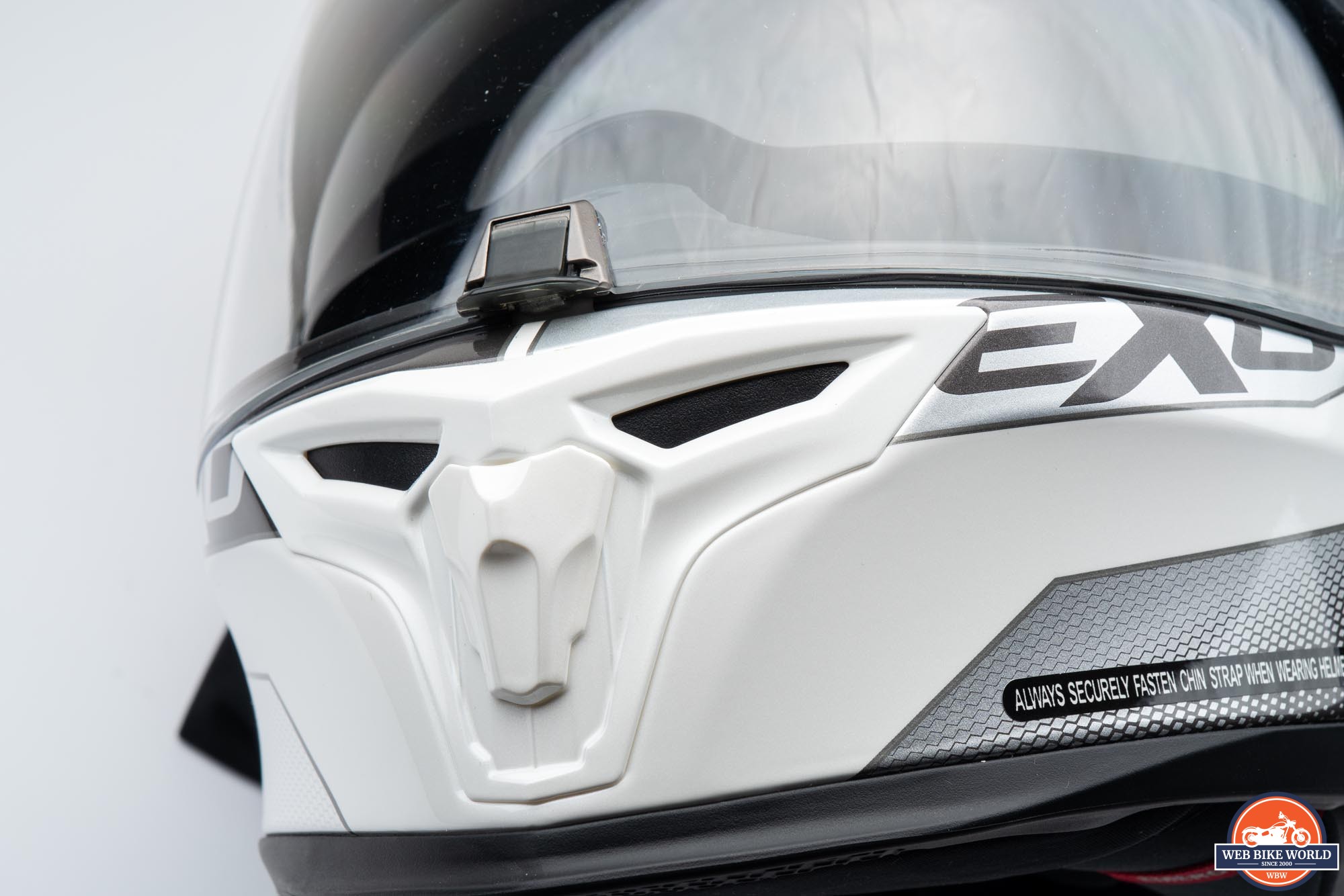
On the outside of the helmet, we have front (chin) and top vent assemblies in white plastic on this colorway. The plastic assemblies are very strongly attached with no wiggle detectable and the overall feel is very robust. Likewise, the rear vent cover, which is also an add-on piece like the front and top vent assemblies, definitely feels like it is there to stay. The fact it has no moving parts makes it feel even more solid.
Chin Strap
A standard double-D ring is used for fastening the chin strap. This is a tried and true system that works well and is inexpensive to implement. The straps are well-padded and covered with a smooth material that is very comfortable for long rides. The padding is removable from both left and right straps for easy cleaning if needed.
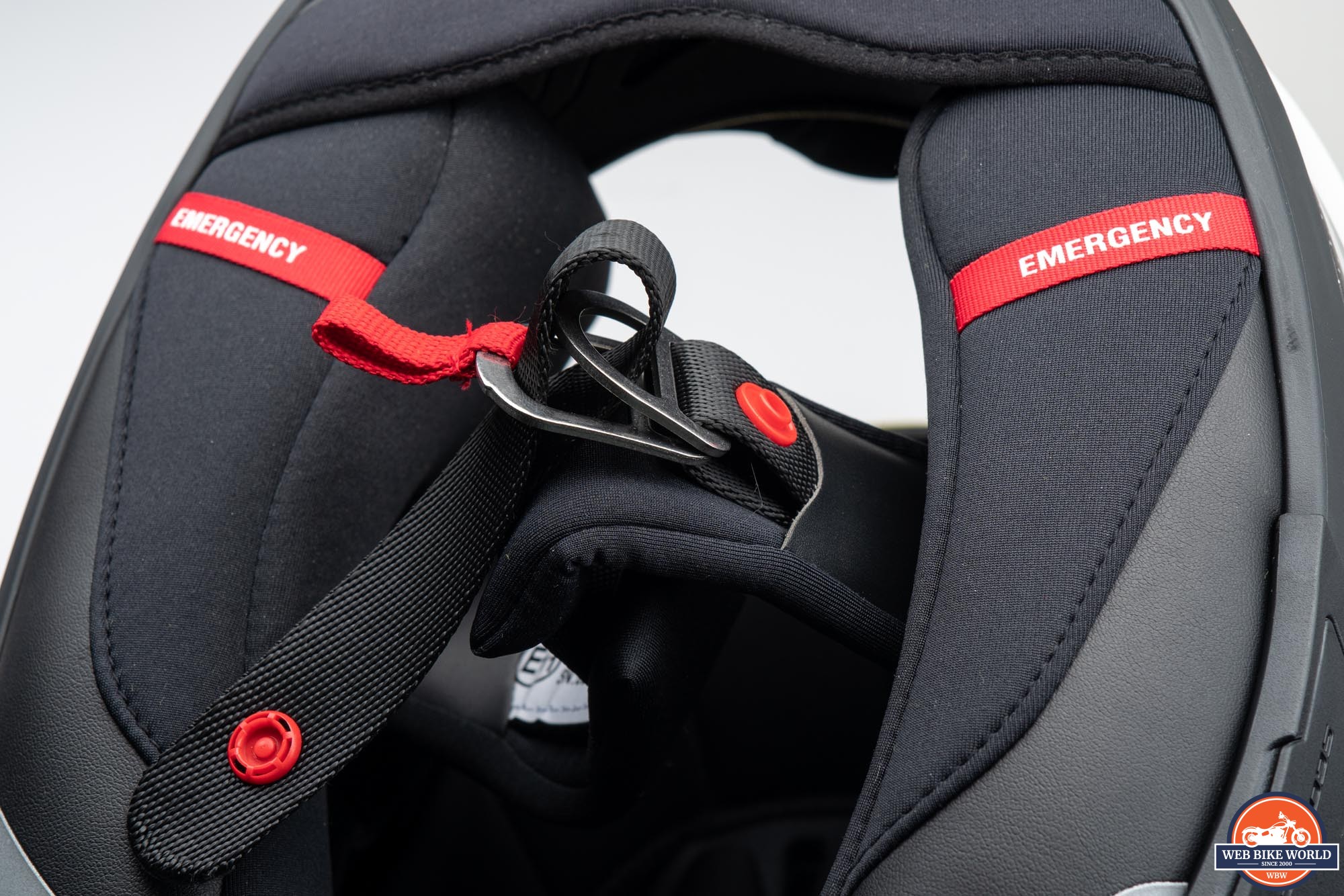
Emergency Pulls
I appreciate that Scorpion includes emergency cheek pulls on many of their full-face helmets. This is such an easy thing to implement and can greatly assist EMTs in removing a helmet by reducing the risk of additional trauma to a crash victim. These pulls allow the cheek pads to be removed from the helmet shell by letting the snap-in pins get extracted from their positions as the pad itself is pulled downward.
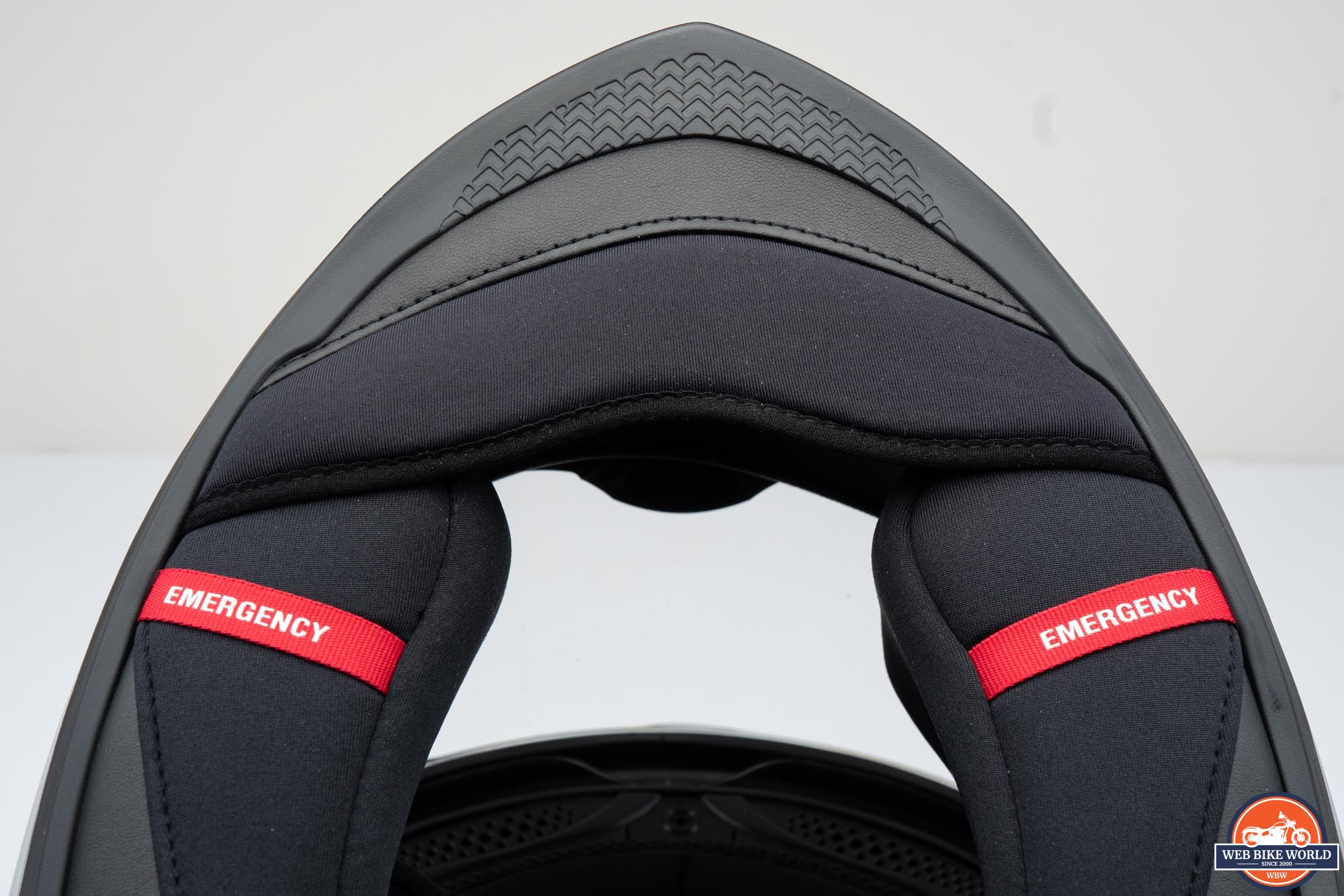
The pull tabs themselves are highly visible and very easy to access as they should be for their intended use. I’ve never had to take advantage of this feature But I’m always glad it’s there in my helmet.
Three Shell Sizes
For a helmet in this price range, it’s nice to see that Scorpion uses three different shell sizes for the T520 helmet. This allows the size of the shell to better match the interior sizing and reduces the chance of a “Space Helmet” look that can happen when one has an XS size in a shell that also covers size large or even XXL.
Interior
The cheek pads and liner in the T520 use Scorpion’s Kwikwick “C” liner material. This material is designed to keep one cool and dry in warm weather and warm in cool weather. How exactly does it do this? That’s actually not explained on their site but it is a smooth and comfortable material and has a little more texture to it than their other Kwickwick liners.
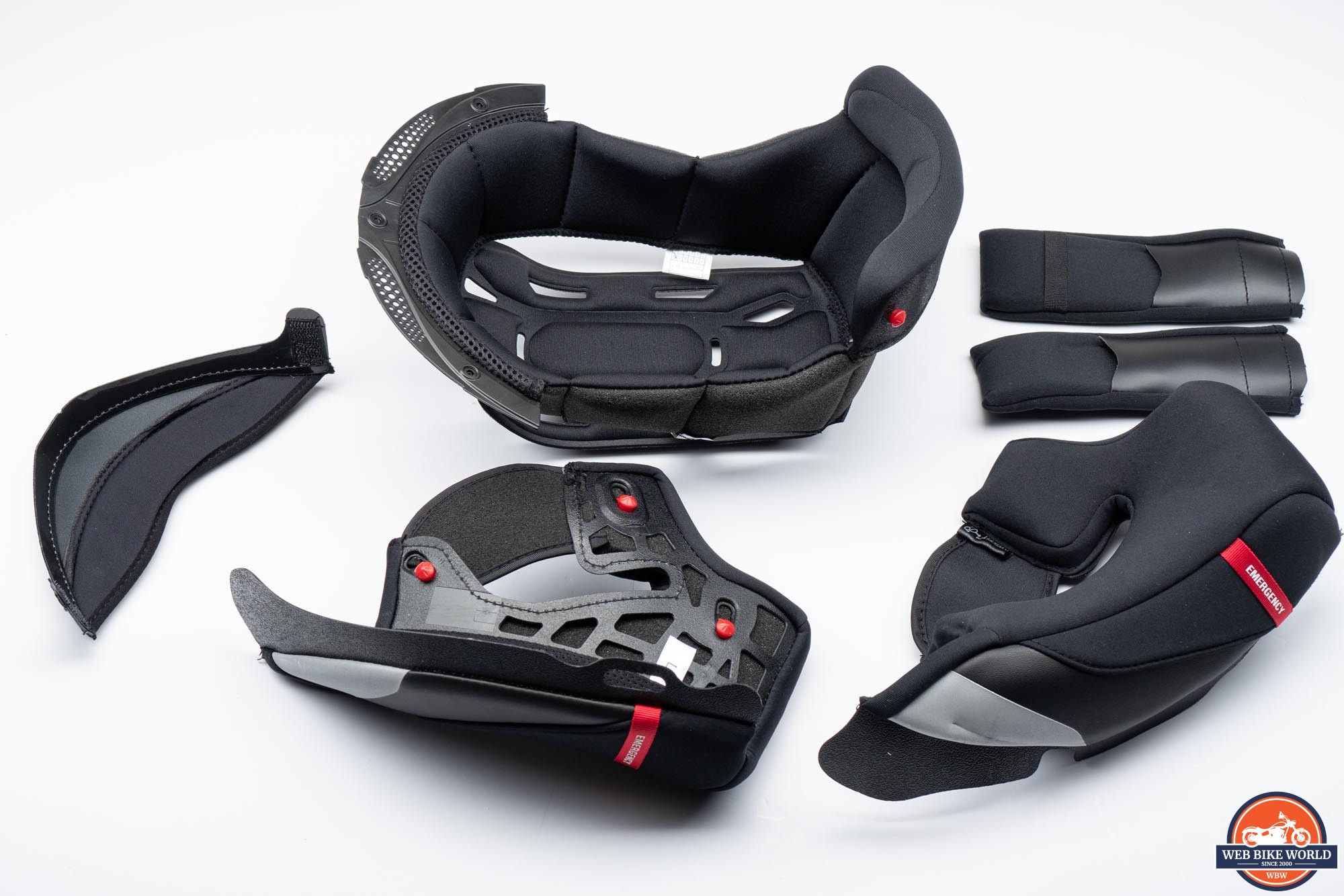
The cheek pads and liner are completely removable for cleaning and this is also necessary for installing the EXO-COM® bluetooth system which we’ll look at shortly. A chin curtain is supplied and installed by default and it is removable if one desires more airflow from under the chinbar.
The EPS (extruded polystyrene) used in the T520 is a dual-density design and it includes several channels for air to pass over and around the liner. This is a pretty standard setup but Scorpion also includes large spaces for speakers and there are air bladders that sit between the EPS and the cheek pads as part of the AirFit system.
Helmet Weight
Surprisingly, the T520 has gained some weight (130g) over the previous T510 helmet weighing in at 3lbs 13.55 oz (1745g). This places it in the range of many flip-up helmets including the Scorpion GT920. Picking up the helmet the weight is pretty obvious especially when compared to my carbon fiber St1400 at 1516g.
Polycarbonate shell helmets typically do weigh more and helmets that meet the Snell specification also tend to be heavier. For instance, the less expensive EXO-420 weighs only a few grams more but it meets the Snell M2015 spec.
I’m going to hazard a guess that the shell of the T520 is very similar to the 420 and could meet Snell but manufacturers rarely (if ever) submit helmets with internal visors for Snell certification. All that said, the helmet feels well balanced despite the heavy weight.
Intercom / Speaker Support
There are large spaces for helmet speakers which not only allow space for most helmet speaker systems but are designed to accommodate Scorpion’s new EXO-COM® bluetooth system. This system, which we’ll look at shortly, uses UClear’s technology and the speakers include microphones in their housing. This makes them larger than many systems which is why we have large speaker pockets here.
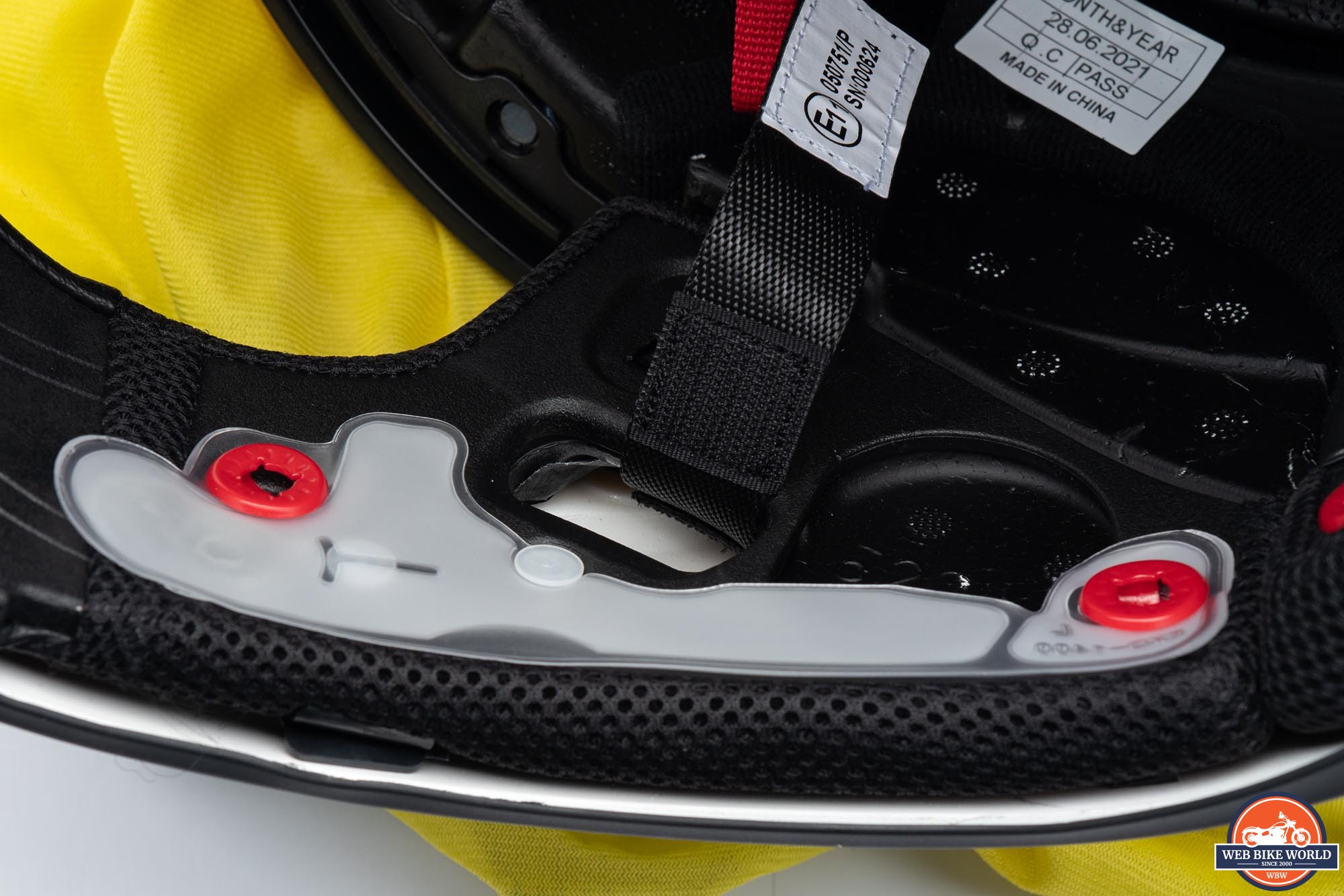
There is also a separate provision for cable management by way of a special pocket in the left side cheek pad. This narrow pocket allows one to tuck extra cabling inside the cheek-pad to keep the installation neat. This is specific to the T520 (and maybe the GT930) and it is important one checks the manual for the helmet for these features.
Fit and Comfort
When I first pulled this lid over my head I had to stop for a minute and check that it is indeed a size large. After confirming it was a size large so I tried again and was able to don the helmet. The sizing does seem spot-on and if one typically wears a size large in other brands the T520 should fit as expected.
Once it gets completely settled on the head it fits fine but the opening is smaller than expected. The snug fit around the neck is a good thing as it helps reduce booming and other low frequency noises as well as keeps air from flowing up underneath the sides and back of the head.
Shape
Scorpion helmets typically fall into the “intermediate oval” shape but the T520 seems to be a little bit “longer” than intermediate. On the one hand, there is some nice space in front of the chin compared to some other intermediate oval shaped helmets. On the other hand, there is a bit of a gap at the rear where the padding isn’t fully up against the back of the head.
Comfort
While the interior lining isn’t what I would characterize as “plush” it’s smooth and comfortable against the skin. The snug initial fit gives way and breaks in quickly so once underway I never felt any odd pressure points or other issues.
The weight of the helmet is noticeable but not unbalanced. If I’m sitting at a stop I can feel the weight as I turn my head side to side. Once underway the pressure of the wind makes the heavy feeling much less noticeable.
The padding offers a nice balance of give vs pressure and it continued to break in well over several hours of riding. If one is between sizes this break-in could cause the helmet to be too loose over time but that can be mitigated thanks to Scorpion’s Airfit® system.
Airfit® Liner Inflation System
Inside the chin-bar is a large red, rubber bulb and there is an air bladder behind each cheek pad. Presson on the bulb inflates the bladders and snugs the fit at the sides. This can help ensure a good fit and it can also extend the useful length of time the helmet fits well as the padding wears over time.
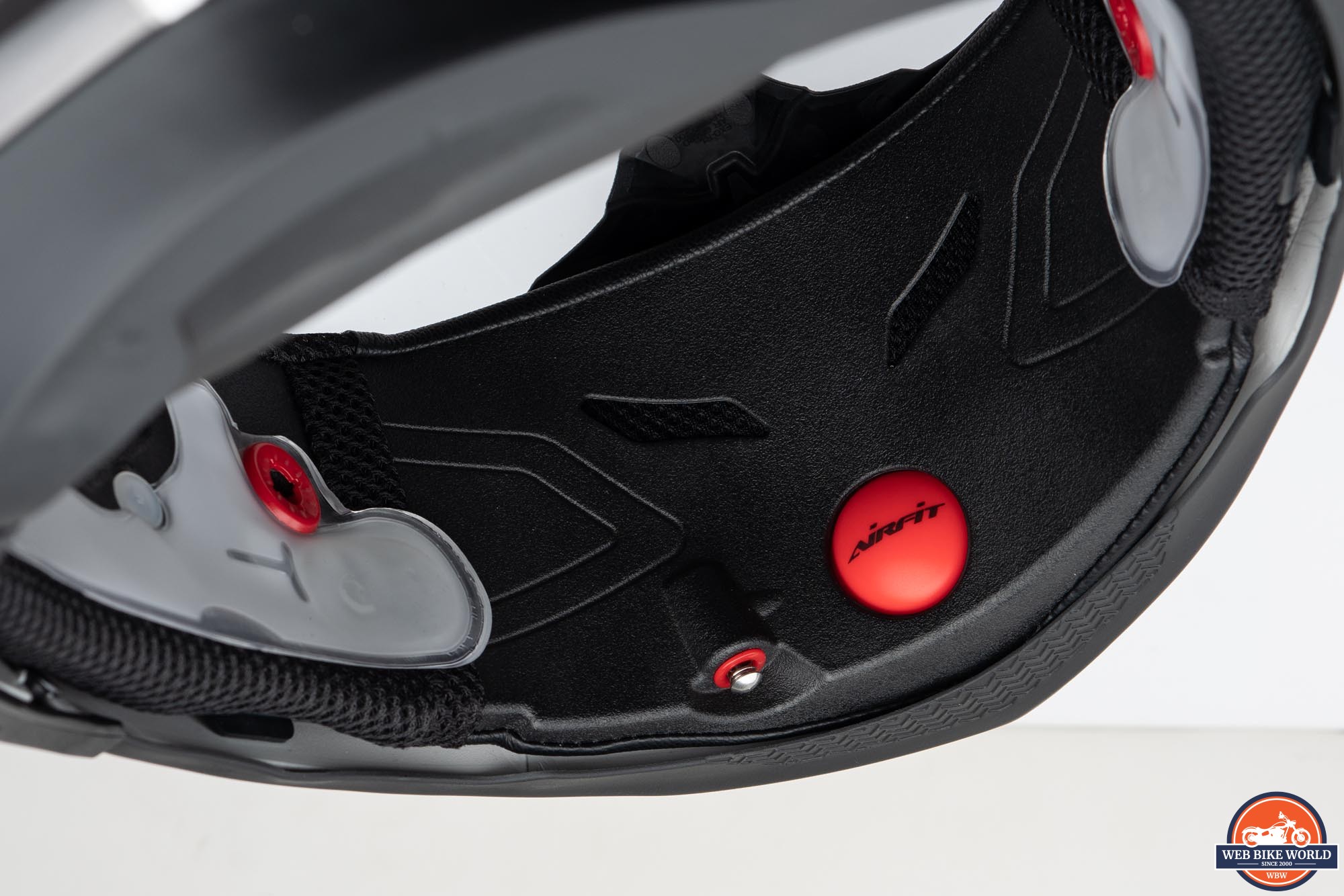
I haven’t needed to make use of the AirFit® system as the fit is very good as is however, I have tested it to make sure it holds air over time, which it does. Pressing the small silver button next to the red bulb releases the air and it seems to hold just fine over time. Of course, Scorpion has had a long time to perfect this system so it’s not a surprise.
Ventilation
Airflow is about average in the T520 with the top vents creating reasonable venting and the chin vents likewise providing good but not great airflow. I was hoping for a bit more as the vent openings through the shell and EPS are direct paths. One can clearly see light coming through the top vent holes inside as well as the exhaust ports but they must not be scooping in as much air as I’d like.
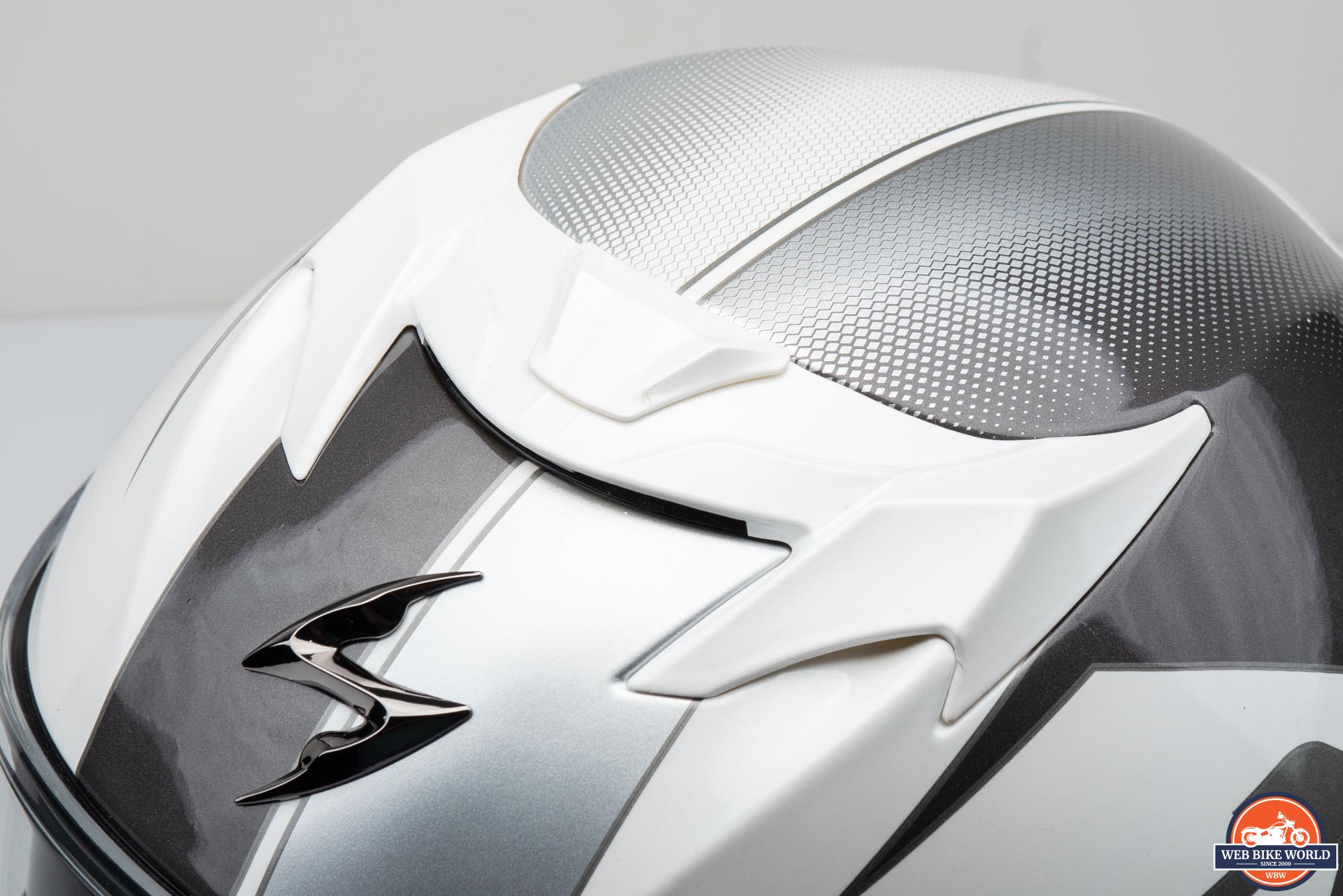
The chin vent has a two-stage setting with the first opening directing air up at the visor. Open the vent fully and this adds air directed through the chin-bar directly at the face. The top vent has two open settings as well but I couldn’t feel much difference from one setting to the other.
The sliding hardware on both sets of vents feels solid and has a very tactile “click” when moved into position. The action of the sliding switches isn’t that smooth but the tactile feeling makes them easy enough to use with gloves on.
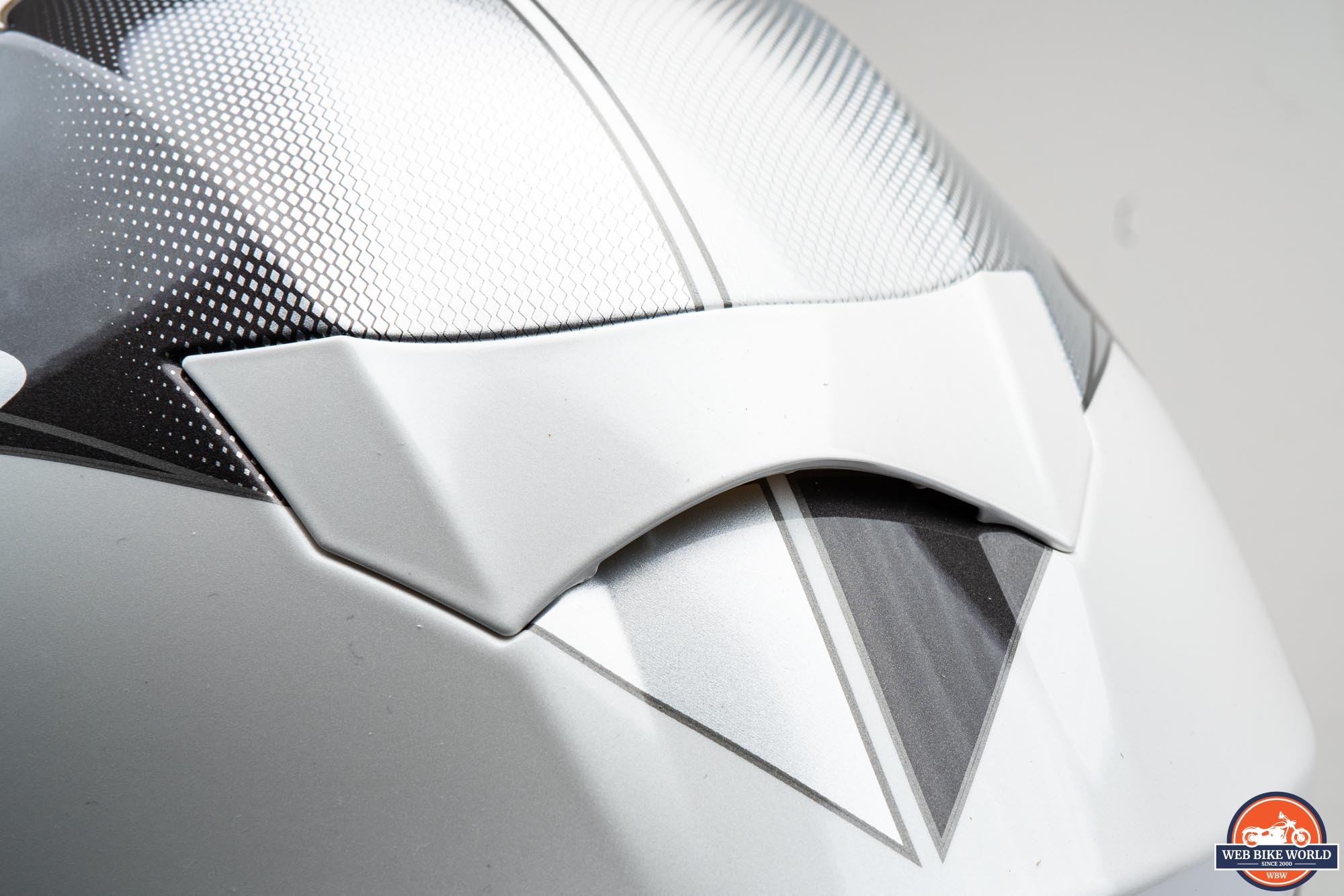
Noise Levels
Noise levels are just “OK” with what I would consider an average amount of wind rushing noise. It can be heard at speeds over 30-35mph and does increase as one moves up to highway speeds. The low sounds are well-controlled thanks to the snug neckroll at the bottom of the cheek pads but the wind rushing noise can be distracting if one isn’t wearing earplugs.
There’s also some “randomness” about the wind rushing noise too. Instead of a constant “woosh”, it has a more variable sound that makes it a little harder to ignore than a more consistent sound. Since I wear custom-fitted earplugs the noise levels aren’t annoying but they are certainly present when riding.
The T520 also has a tendency to whistle if one has their head turned a little to either side. This occurred with the top vents opened or closed. If one is keeping their head straight it’s gone but the whistle will appear if you have your head in just the right (or “wrong”) position.
Keep in mind that noise levels and types will be affected by rider height and the aerodynamics of the motorcycle and any installed windscreen so others’ experience might be different.
Visor & Eyeport View
The visor on the T520 is thin and pretty flexible but optically it is very good. Having a center lift point on the visor makes the flex less noticeable but it pales compared to the thick visors like those on recent Shark helmets I’ve reviewed.
The optical quality is definitely a step up from the one in my own EXO-ST1400. The original visor that came with that helmet had noticeable distortion towards the top. Scorpion sent me a replacement after I asked them about it for that review and it was better but the one on the T520 I have here for review is even better still.
Incidentally, the visor is interchangeable between these two helmets so I have to guess it’s just variability in the manufacturing process or they’ve improved said process since that original ST1400 review.
The included T520 visor uses Scorpion’s Everclear® anti-fog coating and it works very well in the cool temperatures I’ve had the chance to test in recently. My only concern is that over time the coating will fade as most of these types of coatings do. Fortunately, there is a Pinlock Maxvision visor available for those who prefer them.
Sealing around the visor on the T520 is excellent and not unexpected. Scorpion uses a spring-loaded mechanism (Ellip-Tec II) that pulls the visor up against the seal on the visor port as the visor closes. Testing in the rain and by the kitchen sink showed it creates a good seal against water.
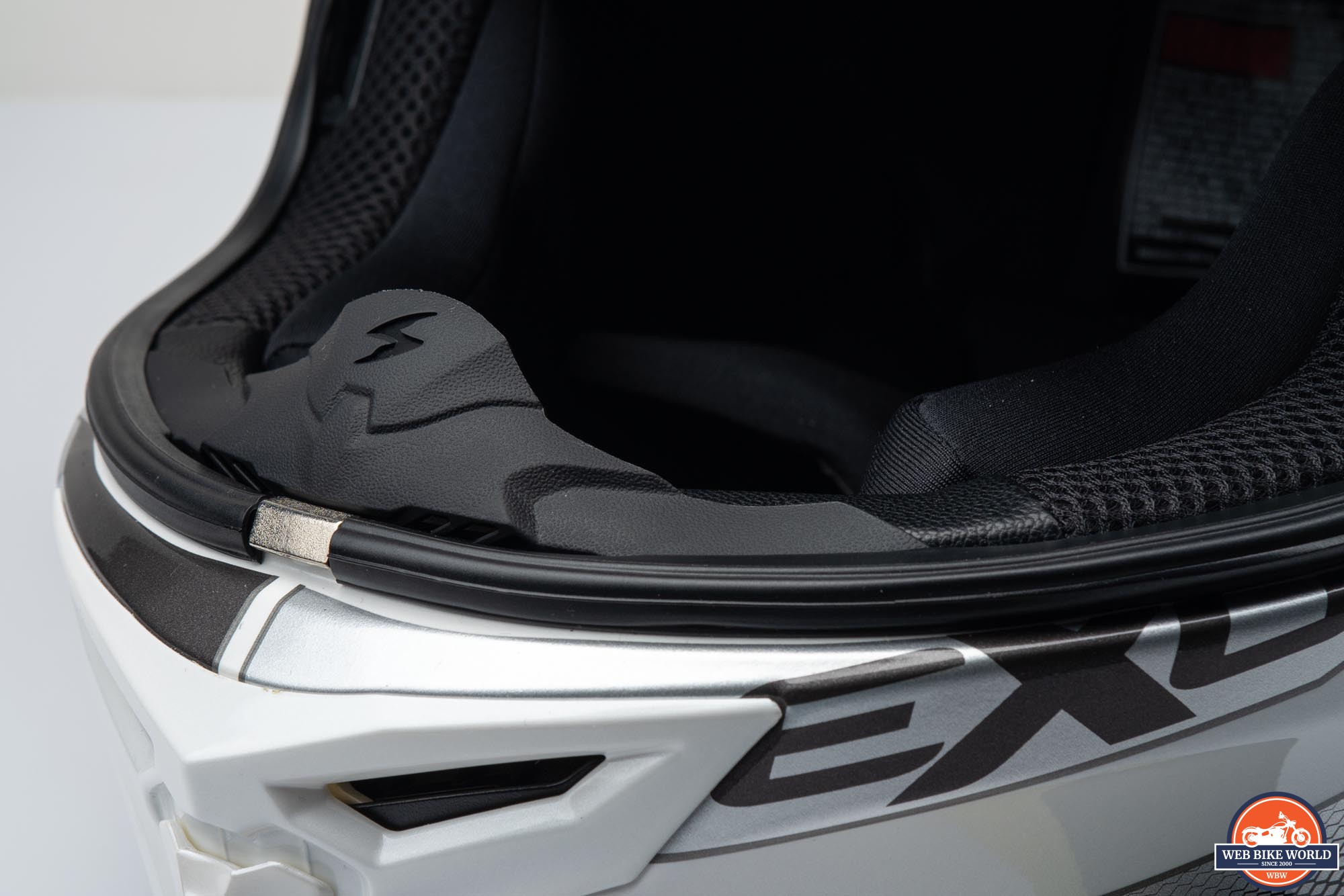
Visibility
Top to bottom visibility is very good and the side to side view is excellent with the latter offering a very wide view in the periphery of vision. There is a breath deflector on the inside of the chin-bar behind the visor that can reduce the visibility of instruments on a bike dash. This deflector is low-profile and I found it didn’t obscure anything I needed to see on my Ninja 1000 but the deflector is removable if desired.
Visor Removal
Removing the visor on the T520 is an easy process and takes little time. One raises the visor to the fully open position, pulls up on the release lever, and then tugs the visor forward and the visor will pop out of the pivot joint.
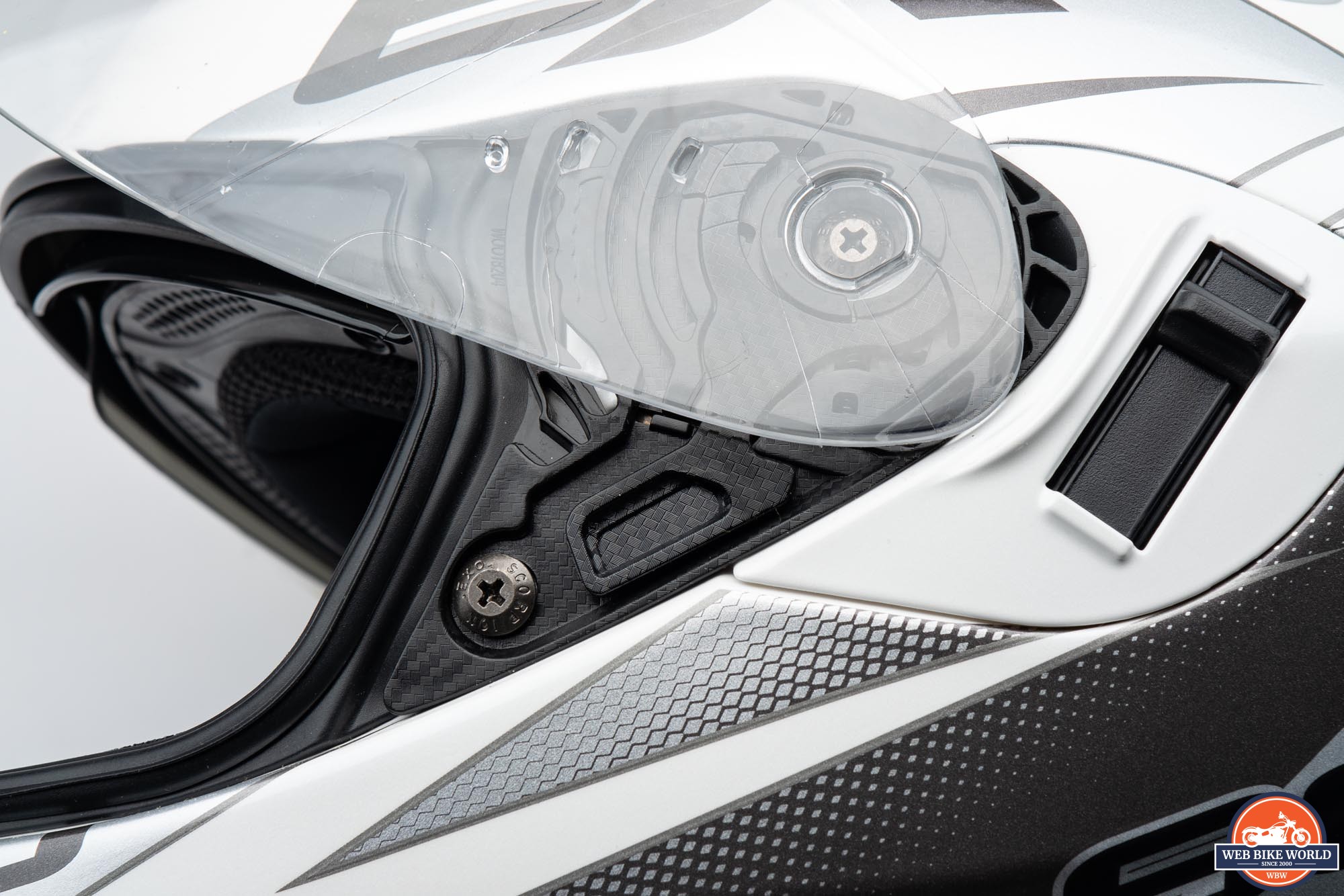
Installation is also quick and easy with the trick being to place the pivot on the visor over the opening and make sure the guides over their tracks on the mechanism. Then press in and forward and the pieces will all fall into place. It takes much longer to describe than it does to perform the steps.
Internal Sun Visor
A sliding switch on the left side of the helmet lowers and retracts an internal tinted visor. I prefer the tint to be darker but this is not an unusual issue for most internal sun visor-equipped helmets. Optically, the tinted visor matches the main one for clarity so the view through it has very low distortion.
Like the previous version of this helmet (T510) the internal sun visor implements the Everclear® anti-fog coating like the main visor. This is not something I’ve not seen often on other internal visors and it is definitely welcome since the internal visor is closer to the face and will want to fog up quickly on cold days.
EXO-COM®
The EXO-COM® system is a new Bluetooth communication set from Scorpion that uses UClear’s technology. This unit is compatible with the EXO-T520 and GT930 helmets from Scorpion with future helmets likely to offer accommodation for the system.
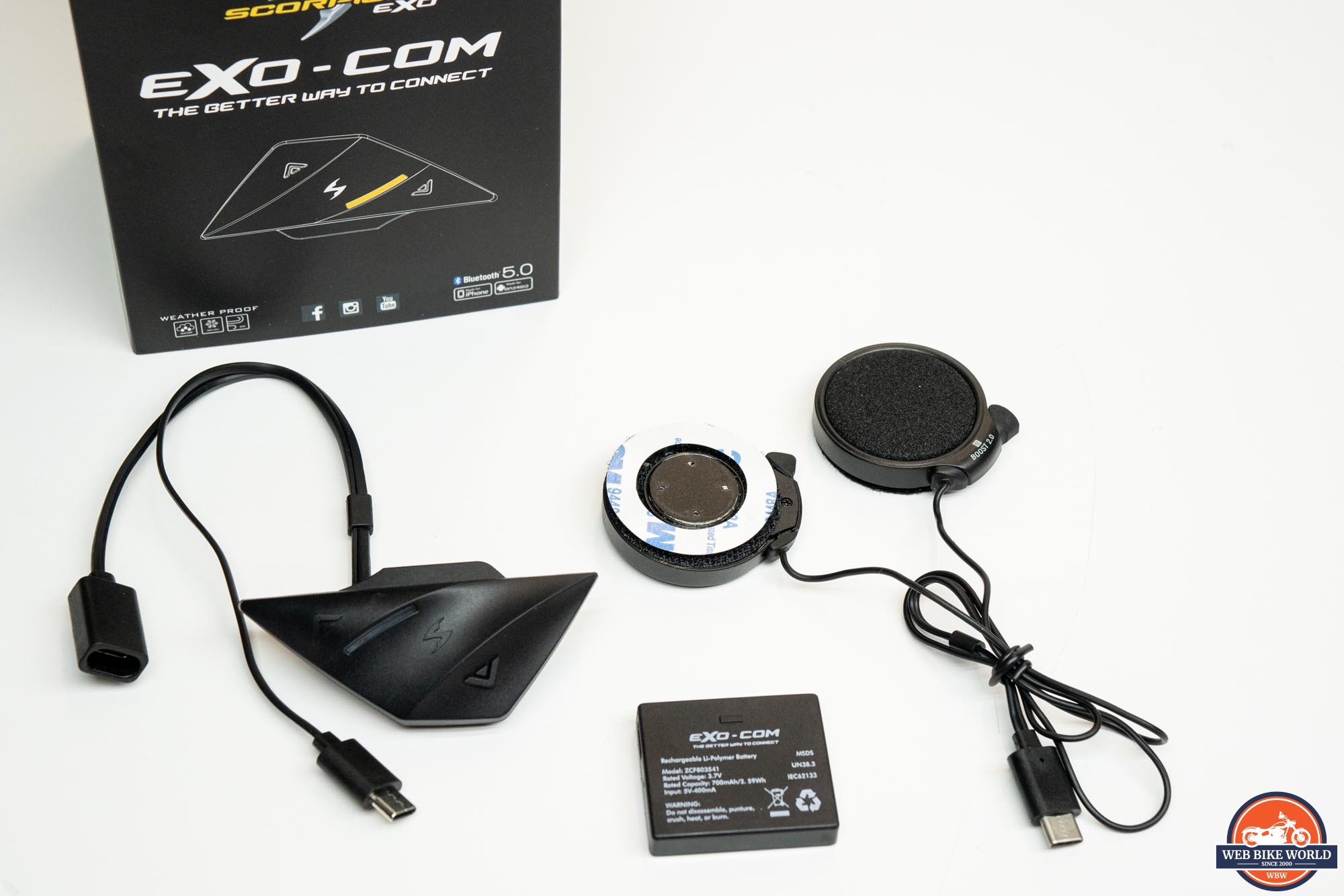
Partnering with UClear meant Scorpion didn’t need to develop a new system from the ground up. The fact that they use the microphones built into the speaker housings means the system can work with full-face helmets as well as open face and convertible ones since there isn’t a separate mic and boom needed for helmets without a chin-bar.
Using UClear technology the EXO-COM® can pair to other UClear intercom capable systems meaning riders aren’t limited to just other EXO-COM® units. I was hoping to test this with my fellow reviewer Kevin Anderson since he has a UClear system in his helmet. However, his particular unit (Vibe-100) appears to be only for phone and other Bluetooth audio but not for intercom.
There’s also a “universal pairing” option with which I was able to connect it to my Sena 3S headset and I can confirm it works and sounds good. Distance performance was only good for about 260ft before it dropped. Leading up to that distance it would cut in and out and that was in direct line of sight. I have a feeling this is a limitation of my Sena 3s than the EXO-COM® device.
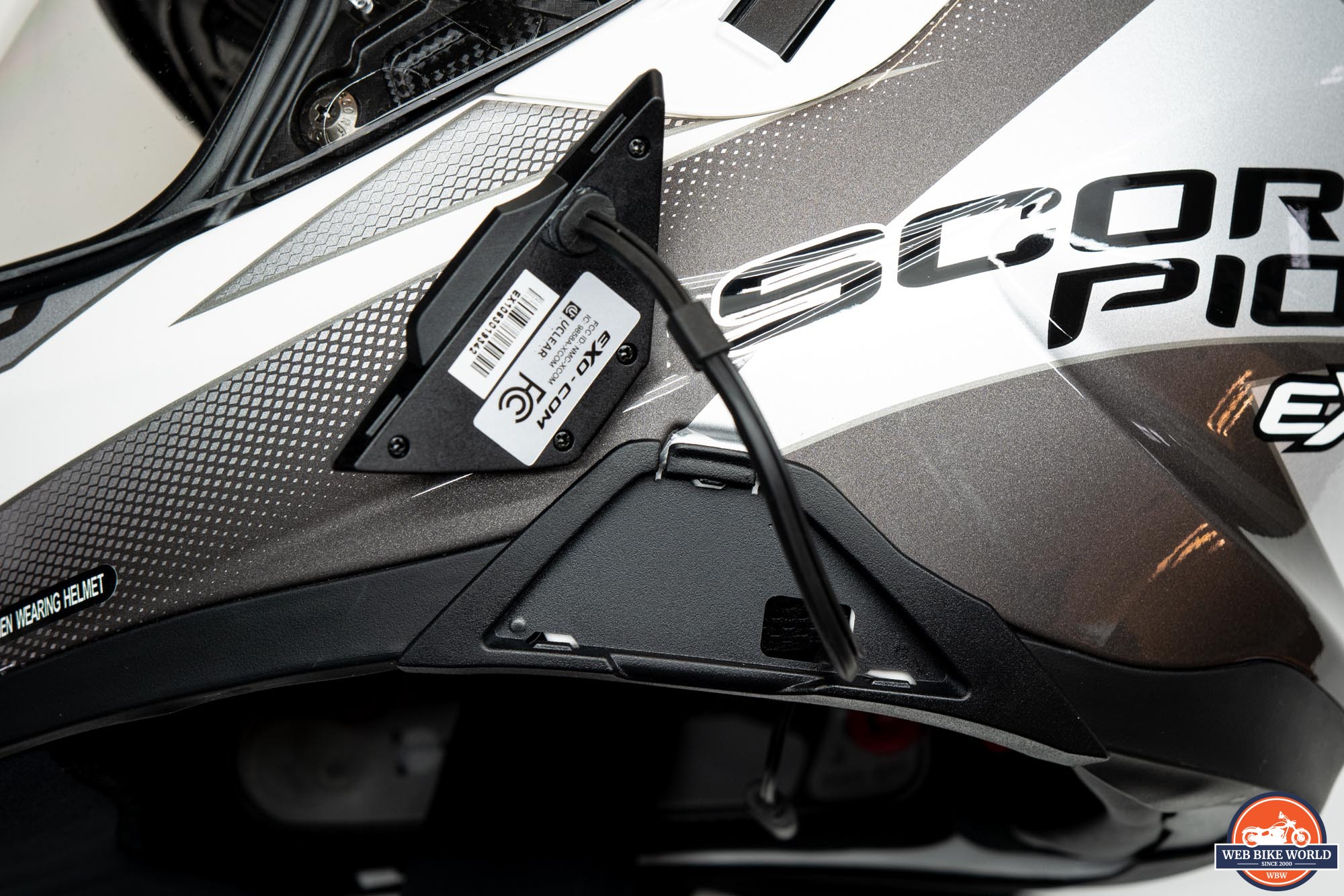
So while I can say intercom pairing works and it can connect to other brands, I can’t really judge how well it would perform connected to other UClear headsets. Also, this is an older Sena 3s unit and it never had a high rating for distance. My fellow reviewer Richard Chang received an EXO-COM® unit for the GT930 he’s reviewing so hopefully he’ll be able to test the intercom capabilities.
Installation With T520 Helmet
Since the EXO-COM is designed to be installed specifically in this helmet (and the GT930) installation is a bit easier in some ways versus some Bluetooth helmet communicator/audio devices. On the other hand, some aspects of the installation were a bit tougher. It is very important to look up the installation procedure for the specific helmet in the helmet instructions, not in the EXO-COM® manual.
Installing the main device/controller requires one to first pass the USB cables through the opening under the cover on the left side of the helmet. Make sure to pass the larger connector through first as it is a tight fit and won’t go through if the cable from the other connector is already in the opening.
From there one follows the instructions for routing the wiring and placement of the speakers in their pockets in the EPS. I was able to place the speakers in the pockets without securing them using the included adhesive-backed hook and loop fasteners. The edge of the Airfit bladders and the cheek-pad covering held the speakers in place for testing.
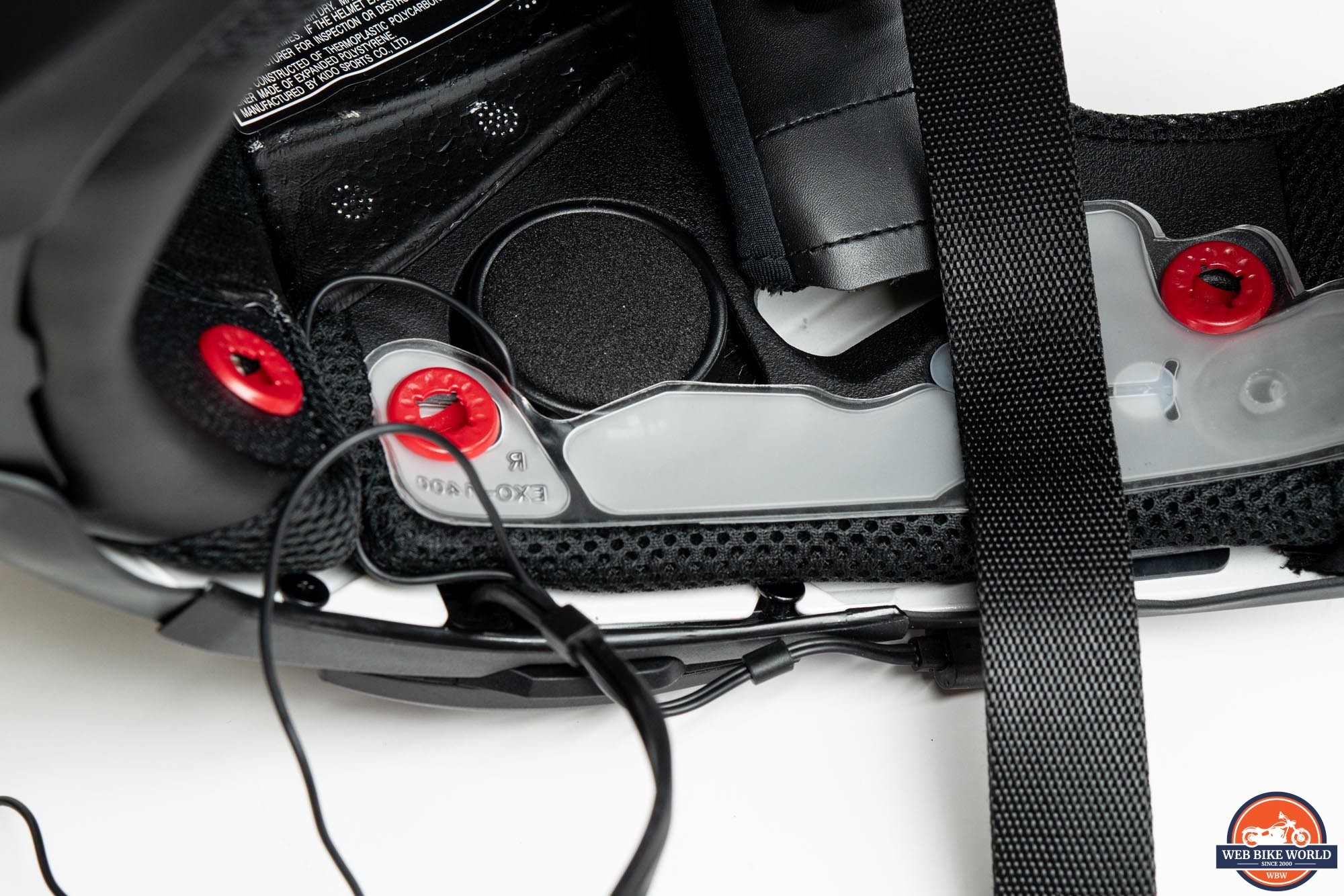


It is important to read the instructions thoroughly as I wasn’t aware there was a space in the left side cheek-pad for tucking the excess wiring and connectors. Until I read that I wasn’t sure where I was going to hide the connector and excess wire where it wouldn’t be pressing against my head.
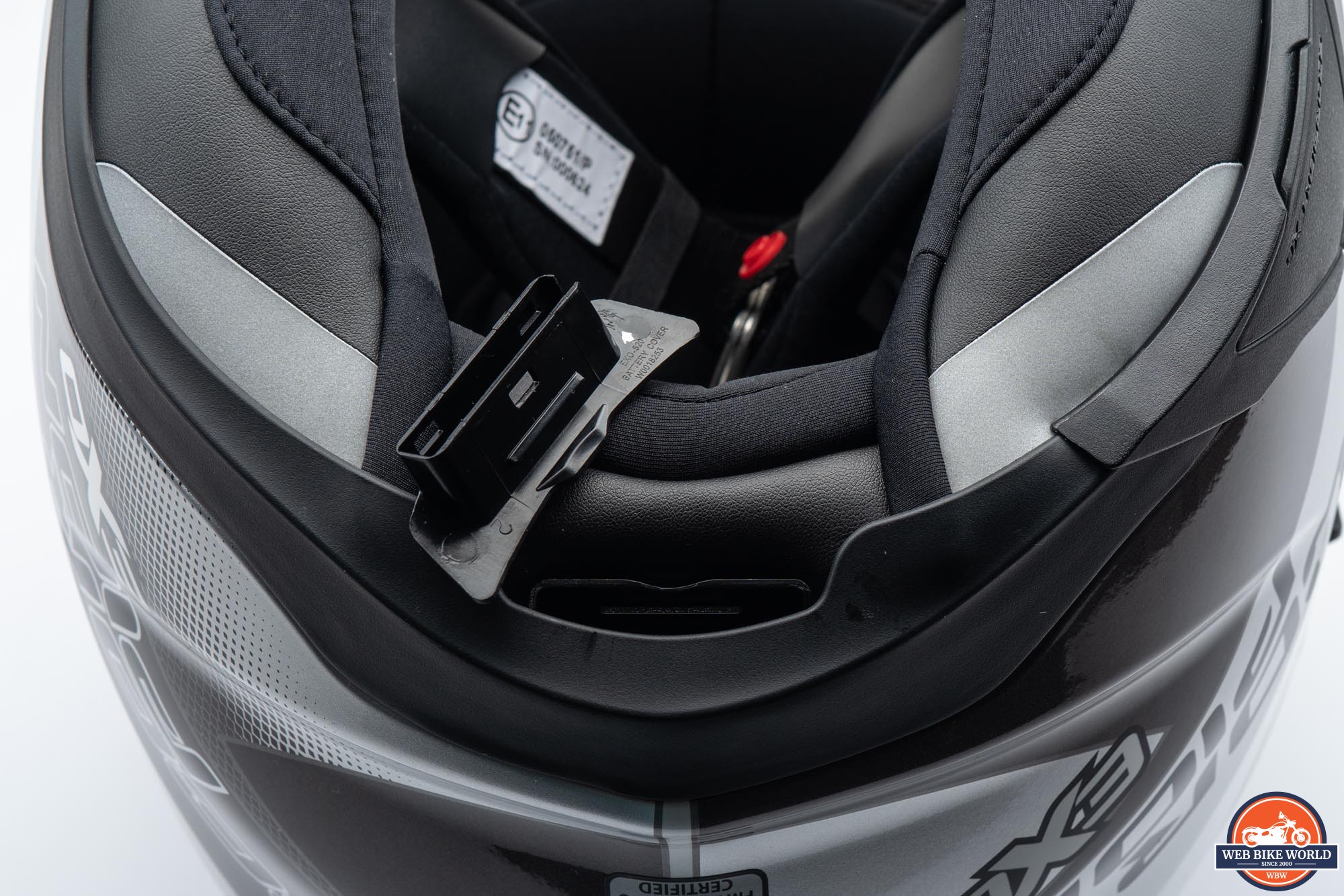


Installing the battery is relatively easy as it slips into the holder that inserts into the back of the helmet just behind where the liner snaps in place. One needs to be careful though when interesting the battery when the cable is connected. The cable is very thin and the area where it sticks out of the battery is cramped. Taking care when inserting the battery will go a long way to make sure this thin cable lasts a long time.
Sound Quality
Audio from the EXO-COM® is surprisingly good. Not that it is a surprise for Scorpion/UClear to provide good sound quality but rather most motorcycle helmet audio systems are typically not the best sounding in general.
The low end provided by the large speakers was very good, provided some good punch and is a definite step (or two) from my Sena 3s system I use now. The 3s has some good-sized drivers itself and the EXO-COM® has a better response across the range to my ears.
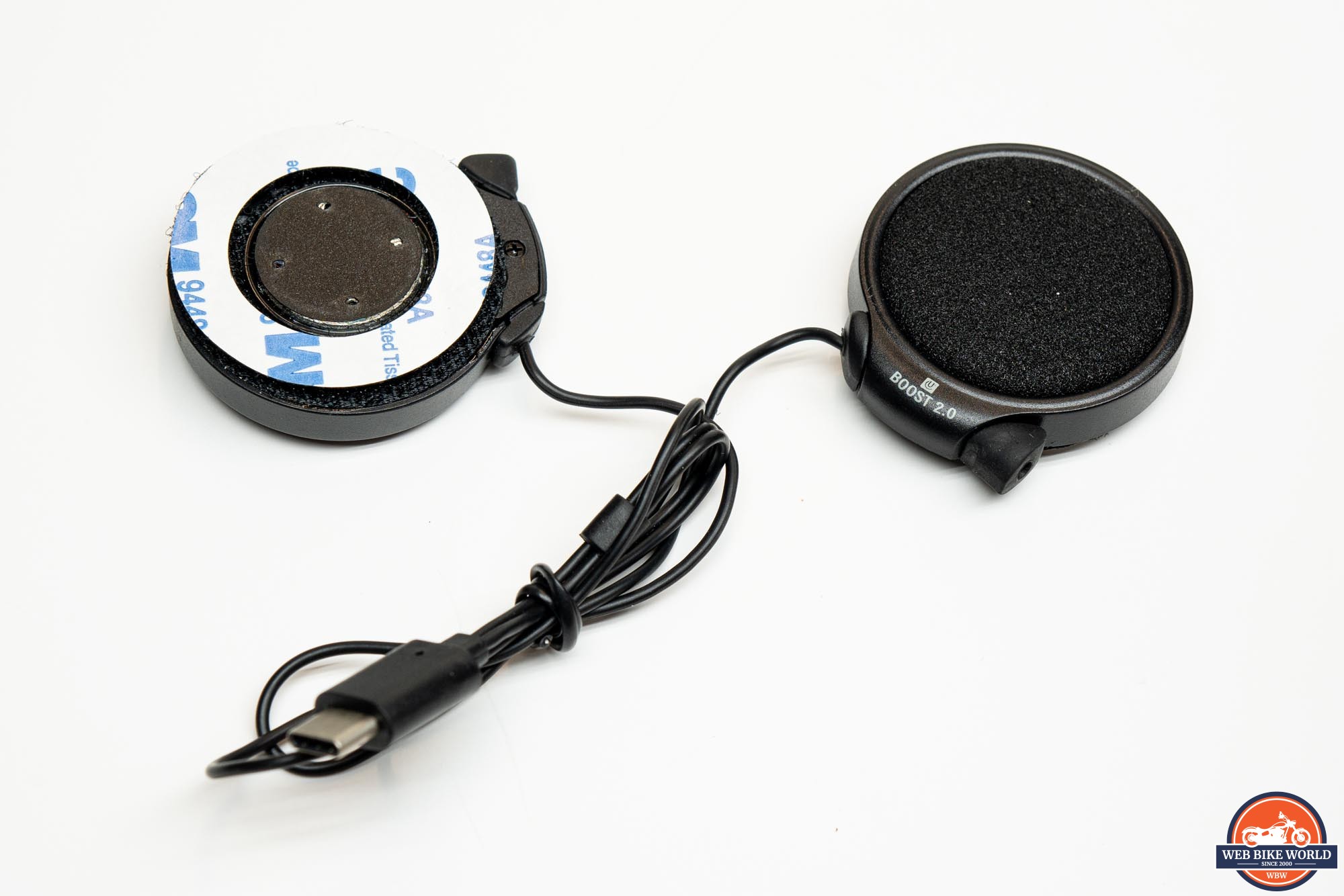


Volume is also generous and even with my earplugs I could easily turn the volume up past the point I would call comfortable. The volume isn’t as much a “thing” as the headroom. The EXO-COM® didn’t sound like it was “straining” to be loud so the overall output was easier on the ears.
As far as the microphone quality, callers on the other end of phone calls said I sounded very clear and didn’t have any idea I was riding while on the call. The beamforming mics do a good job of canceling noise and one can even adjust the noise cancellation through the app. I didn’t find it necessary to tweak the settings from the base setting during my testing.
Operation
Four buttons are located on the control module and they are easy enough to distinguish due to the shape of the device itself. The main surface is broken into three valleys which can easily be felt with gloves on and pressing into the center of these valleys actuates the switch underneath. The fourth button is along the bottom edge of the device and is easy to find.
The center and rear buttons have a good tactile feel to them with a strong click when pressed. The front button is softer in feel and the button on the lower edge is also less “clicky” than the others. The positioning makes all the buttons relatively easy to find and press even when using them for the first time.
I found a noticeable delay between button presses and action taking place. Simple tasks like volume up/down took a half-second or so to happen. It’s not a deal-breaker but it is something I noticed when compared to my Sena 3s I use on a regular basis.
Phone App
Scorpion offers a phone app for use with the EXO-COM® unit available for iOS and Android. While the device can be used without the app, there are several options one can access by using the app that can be very helpful.
This includes an equalizer setting, switching on/off voice answer, and my favorite turning on/off voice prompts. It’s nice at first for the EXO-COM® to tell you what it’s doing but the prompts get tiring after a while and I switched it off.
This app is alsoused to adjust the level of noise canceling. This is handled by a simple slider to increase or decrease the noise canceling effect based on how loud your motorcycle is.
While it isn’t necessary for basic operation the app is pretty handy and works in a fairly straightforward manner. Firmware updates are also handled through the app so it’s a good idea to install the app if for nothing else to get the latest updates.
Battery Life
Scorpion claims a 15 hour battery life and I’ll say that’s probably pretty close. I ran it for a little over 12 hours listening to music and making calls for testing before the low battery warning came on. Since I wear earplugs I probably had the volume turned up more than the average person so that could explain it.
I also did this testing over several days so I’m sure some battery drain happened while it sat between rides. That’s still much better than the seven hours or so I usually get out of my Sena 3S. The battery can be charged using the built-in USB-C port on its housing. Since the battery can be installed/removed from helmet it is possible to carry extra batteries for extended trips. It also means one doesn’t have to place the entire helmet near a charger when topping up the power.
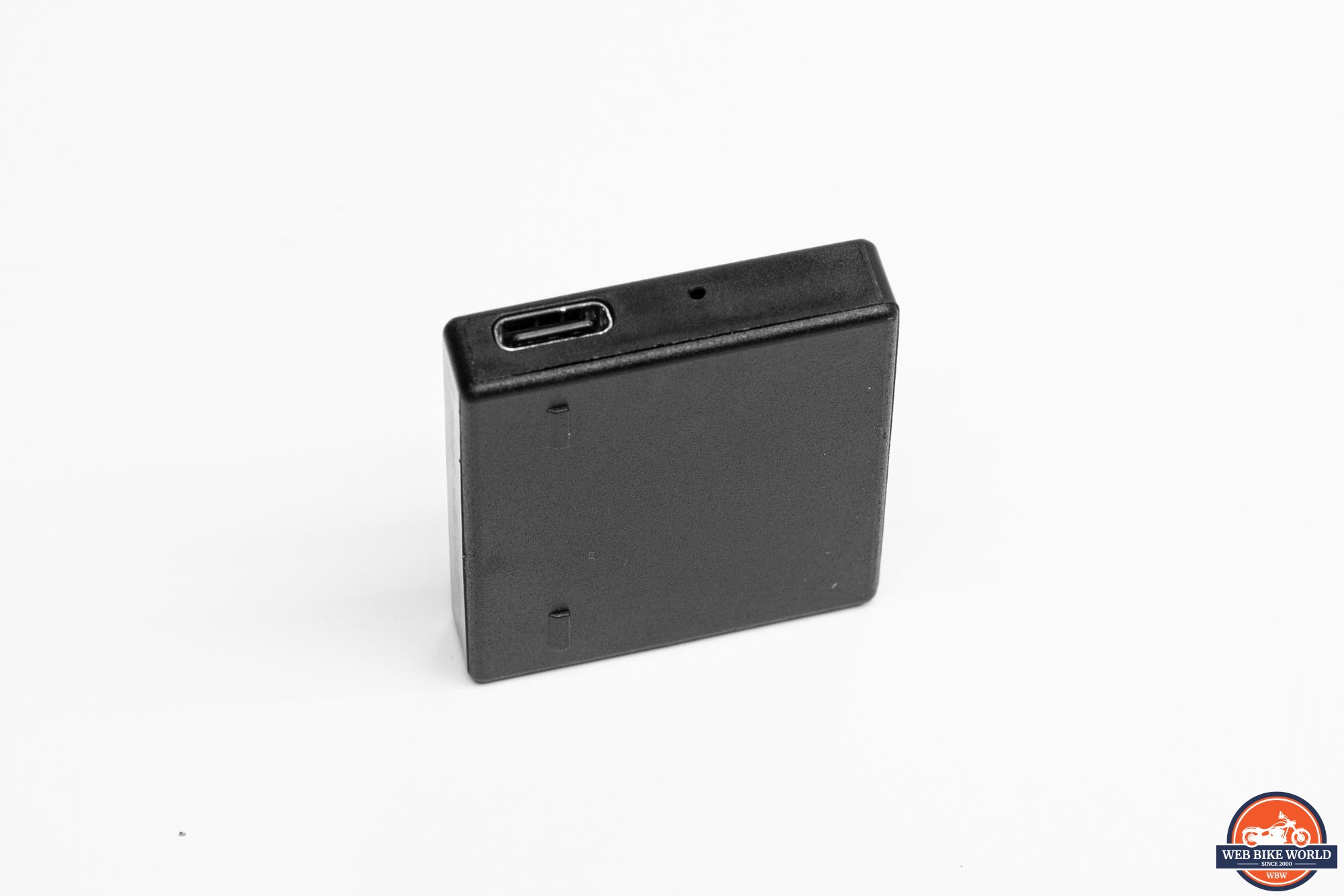


Conclusion
Starting at $199.95, the T520 is one of the better values out there for full-face helmets, assuming the fit and shape are correct for the wearer. The helmet is comfortable, offers a drop down sun visor, and is well constructed overall. The two previous generations of this helmet, the T500 and T510, each received a 4 star rating on the SHARP helmet safety scheme. As such I’m expecting the T520 to do well but I obviously I can’t say for sure.
The fact the T520 has gained weight over the T510 is a bit puzzling as this seems to be a step back rather than forward. The feature set between the two is similar but perhaps compatibility with the EXO-COM® system has something to do with it.
The EXO-COM® (using UClear’s technology) system works very well and sounds great as far as music and phone audio are concerned. I was also able to pair it with a non-UClear intercom system using the universal pairing option but I can’t speak to ideal range and sounds quality that might be achieved using another EXO-COM® or UClear device.
The fact that the system is based on UClear’s devices means there is a better chance that other riders will have a compatible system to share intercoms. On the downside, the system will only install properly into two specific Scorpion helmets at the time of this writing. If one decides they want a different helmet the system can’t easily be adapted to it. Perhaps Scorpion might release a mounting kit that would allow it to be used on other helmets.
For those who plan on getting the EXO-T520 helmet and the EXO-COM® system, Scorpion will soon be offering the helmets with the system pre-installed. It appears this will be offered with the Matte Black version of the helmet only according to Scorpion’s website. A similar option should be available for the GT930 helmet as well.
Scorpion EXO-T520 Helmet
Pros
- 3 shell sizes
- AirFit system
- Very good value
Cons
- Wind noise
Important Links – EXO-T520
- Scorpion USA
- Where to Buy:
Specs
- Manufacturer: Scorpion USA
- Price (When Tested): $199.95 – $219.95 (USD)
- Made In: China
- Colors: Black, White, Matte Black, and graphic options
- Sizes: XS to 3XL
- Review Date: January, 2022
Scorpion EXO-COM® Unit
Pros
- Easy to reach buttons
- Loud enough for earplug wearers
- Very good sound quality from speakers
- Integrated beam forming mics offer good sound pickup
Cons
- Running wires can be tricky (read the helmet manual carefully)
- Battery removal/installation requires care
Important Links – EXO-COM®
- Scorpion USA
- Where to Buy:
Specs EXO-COM
- Manufacturer: Scorpion USA
- Price (When Tested): $189.95
- Made In: China
- Compatible Helmets: EXO-T520 and EXO-GT930
- Review Date: January, 2022


